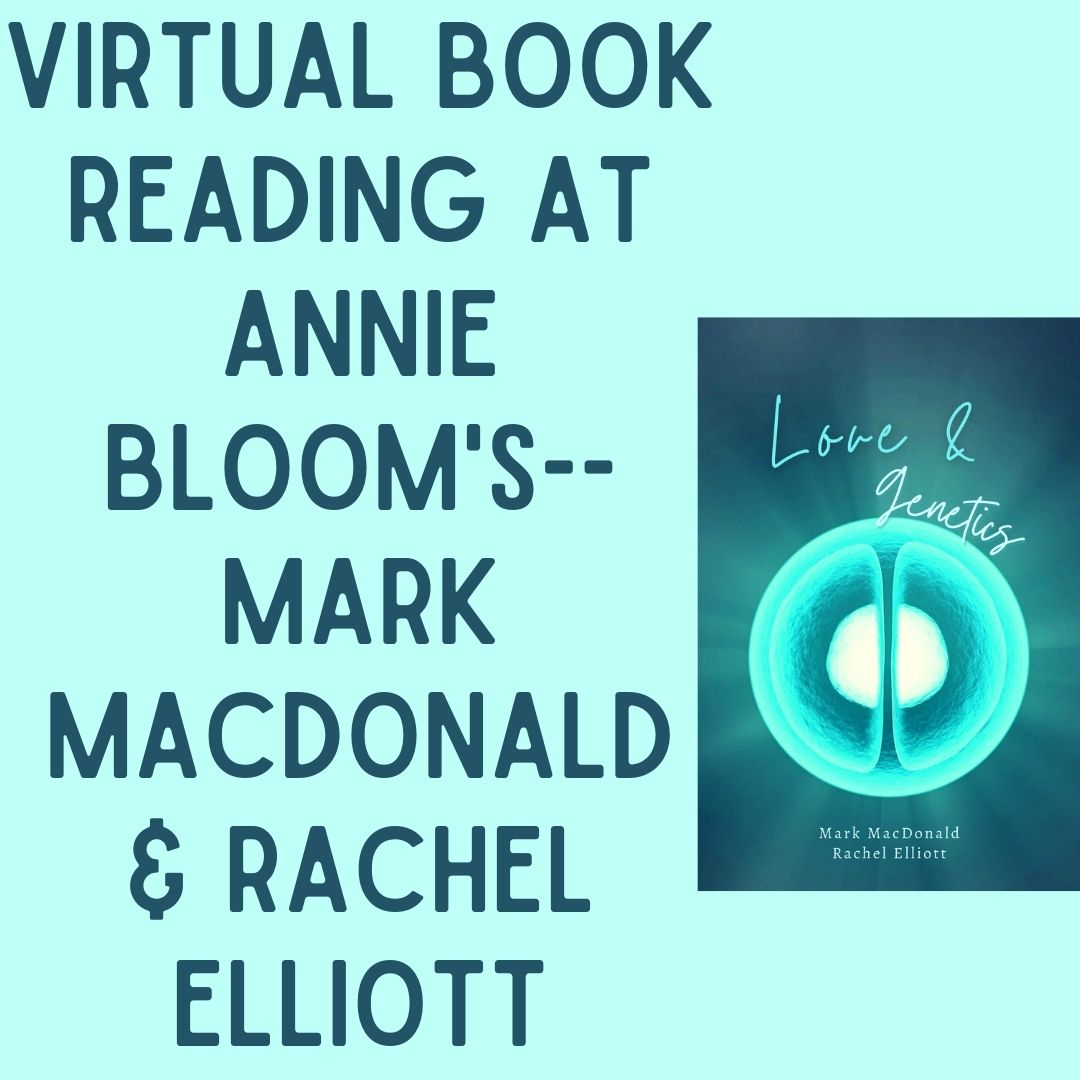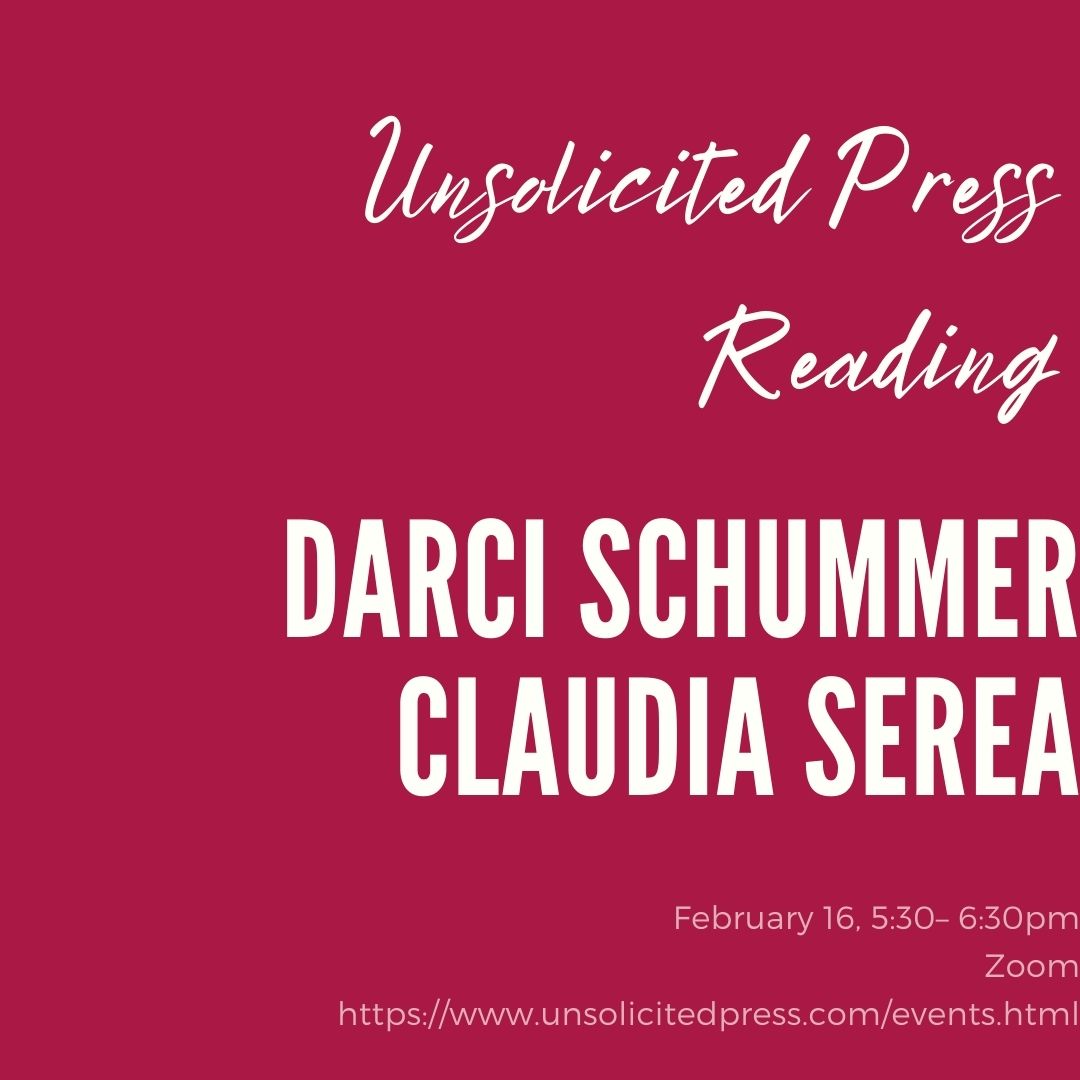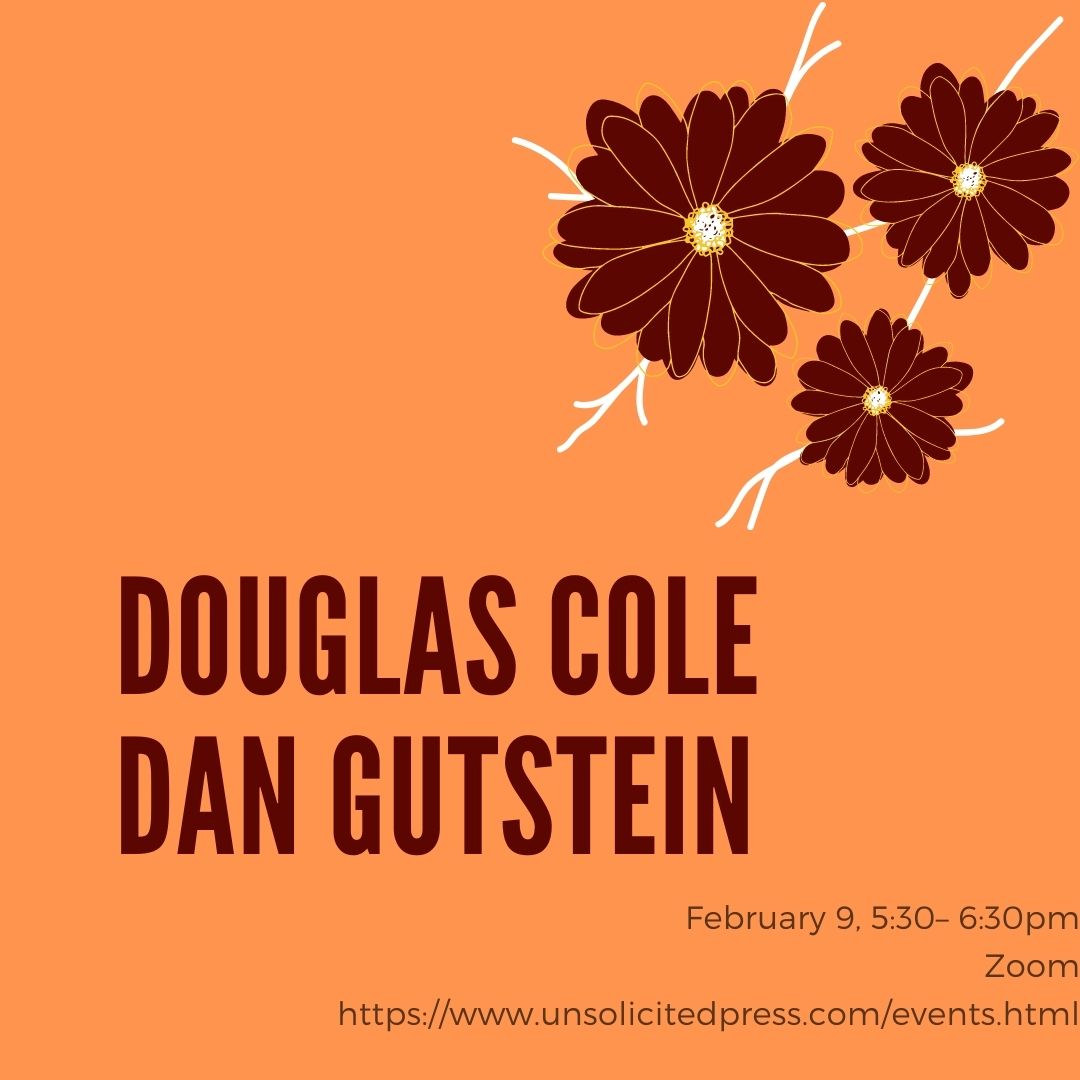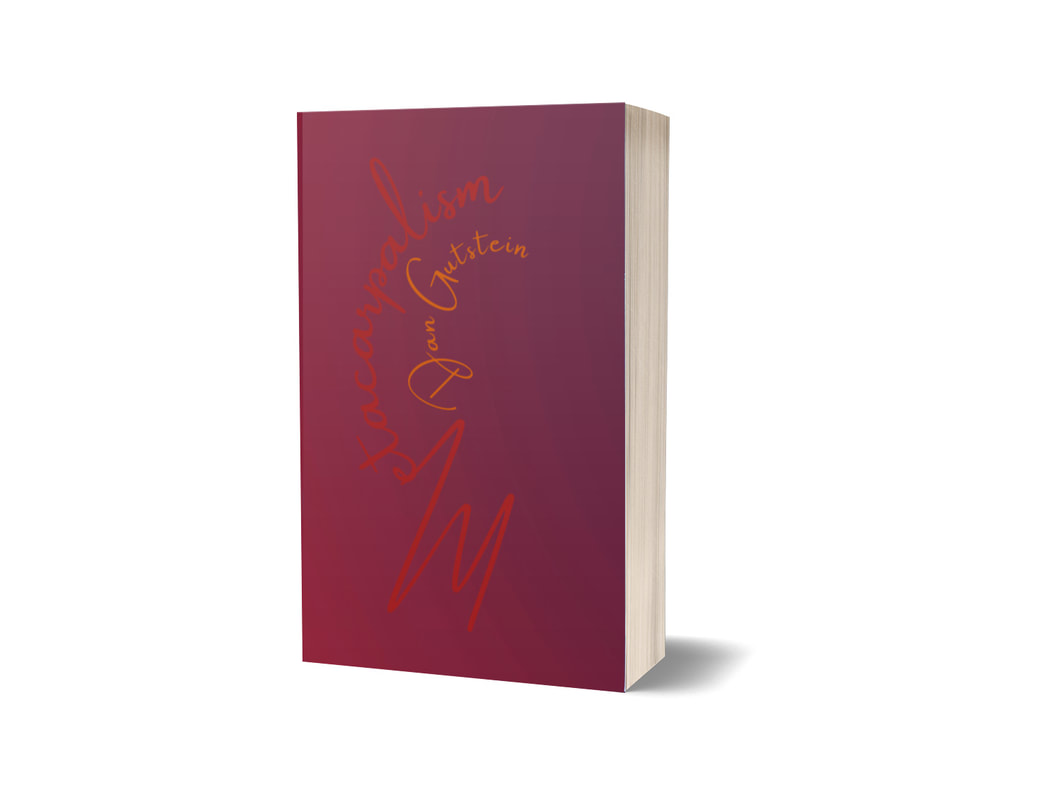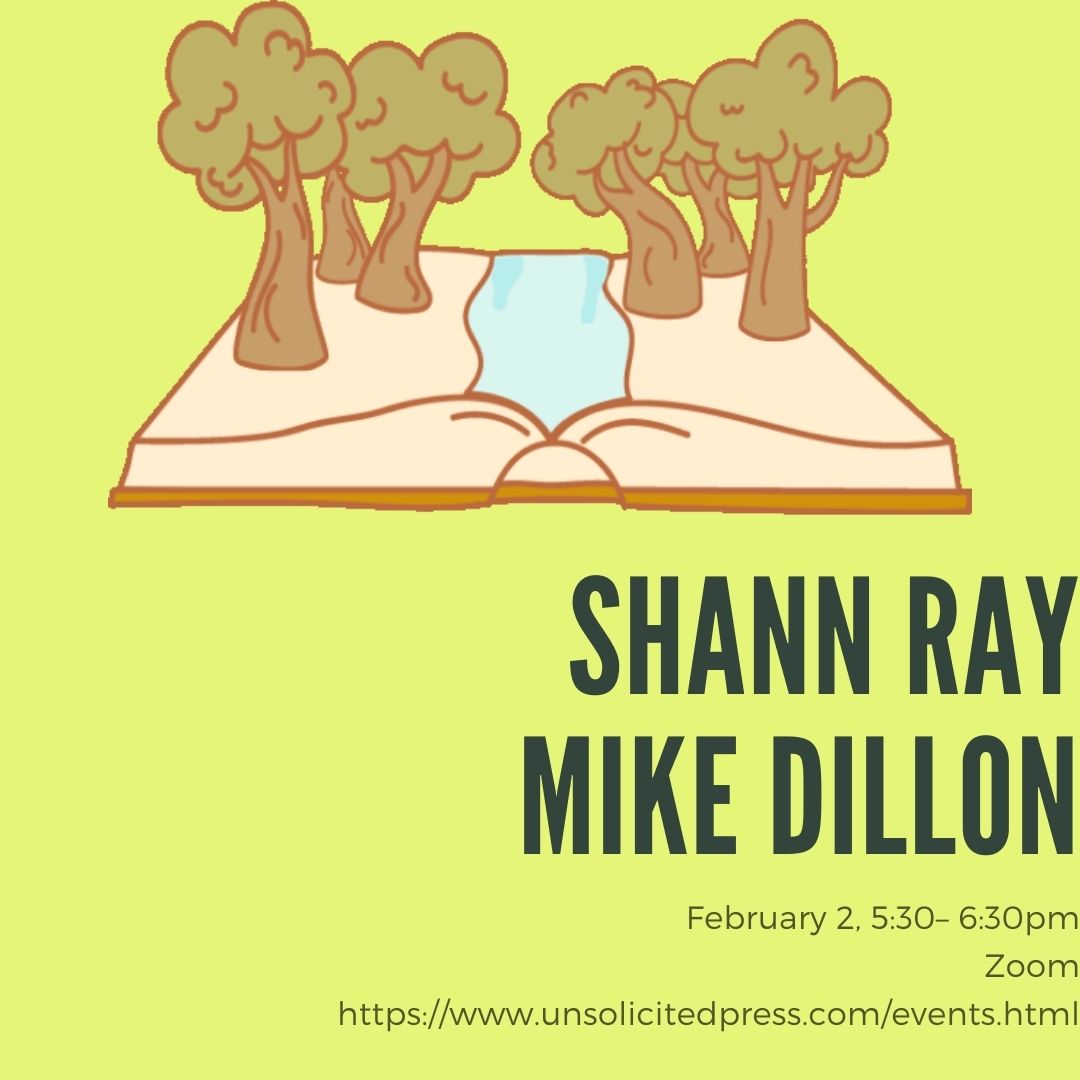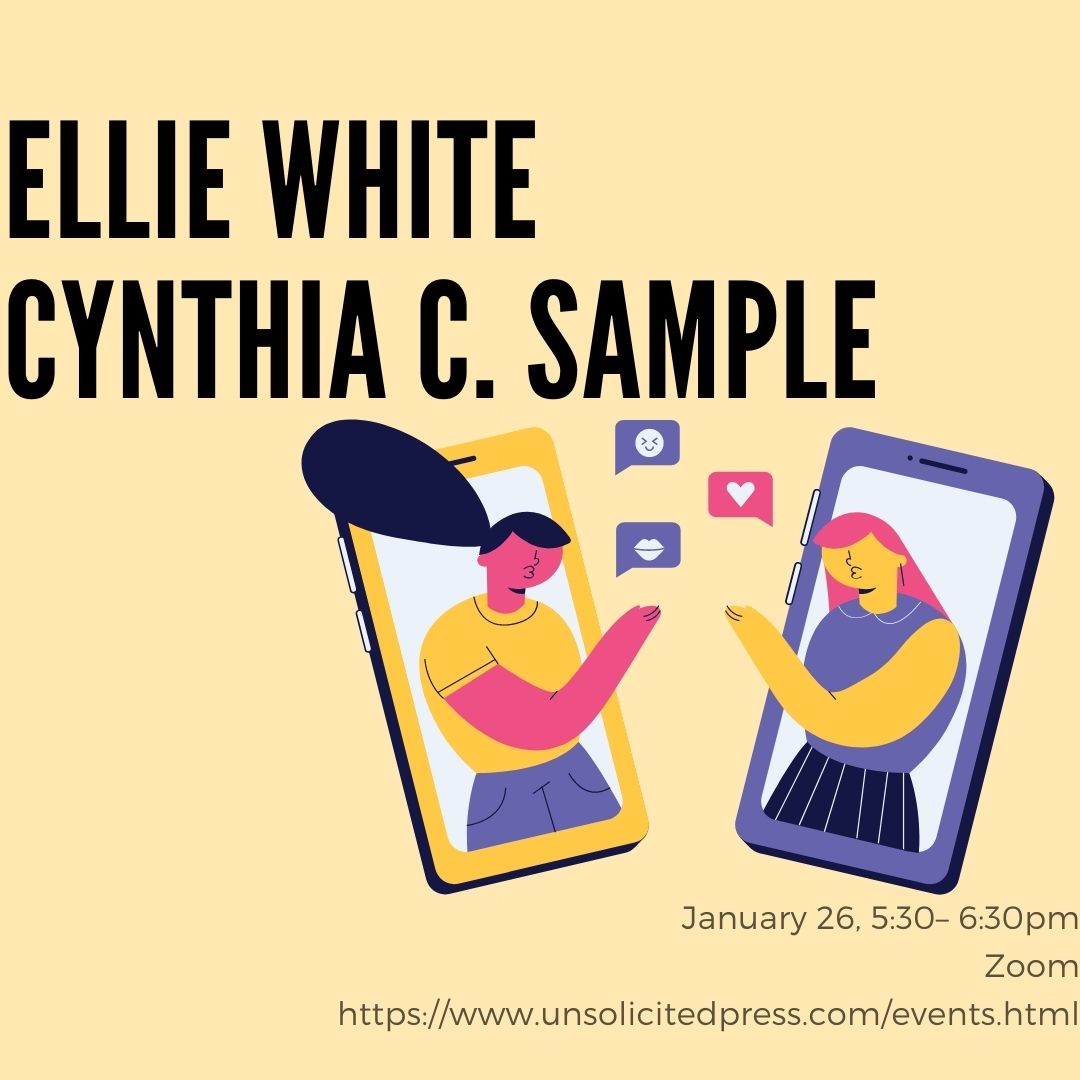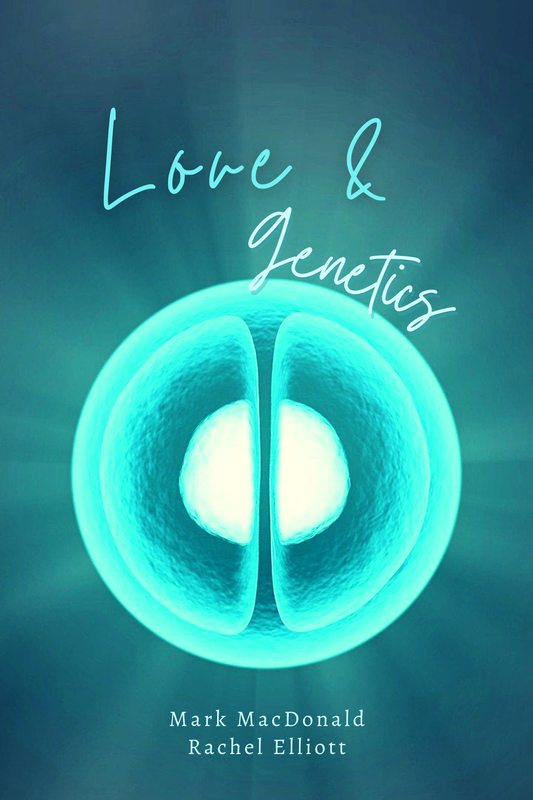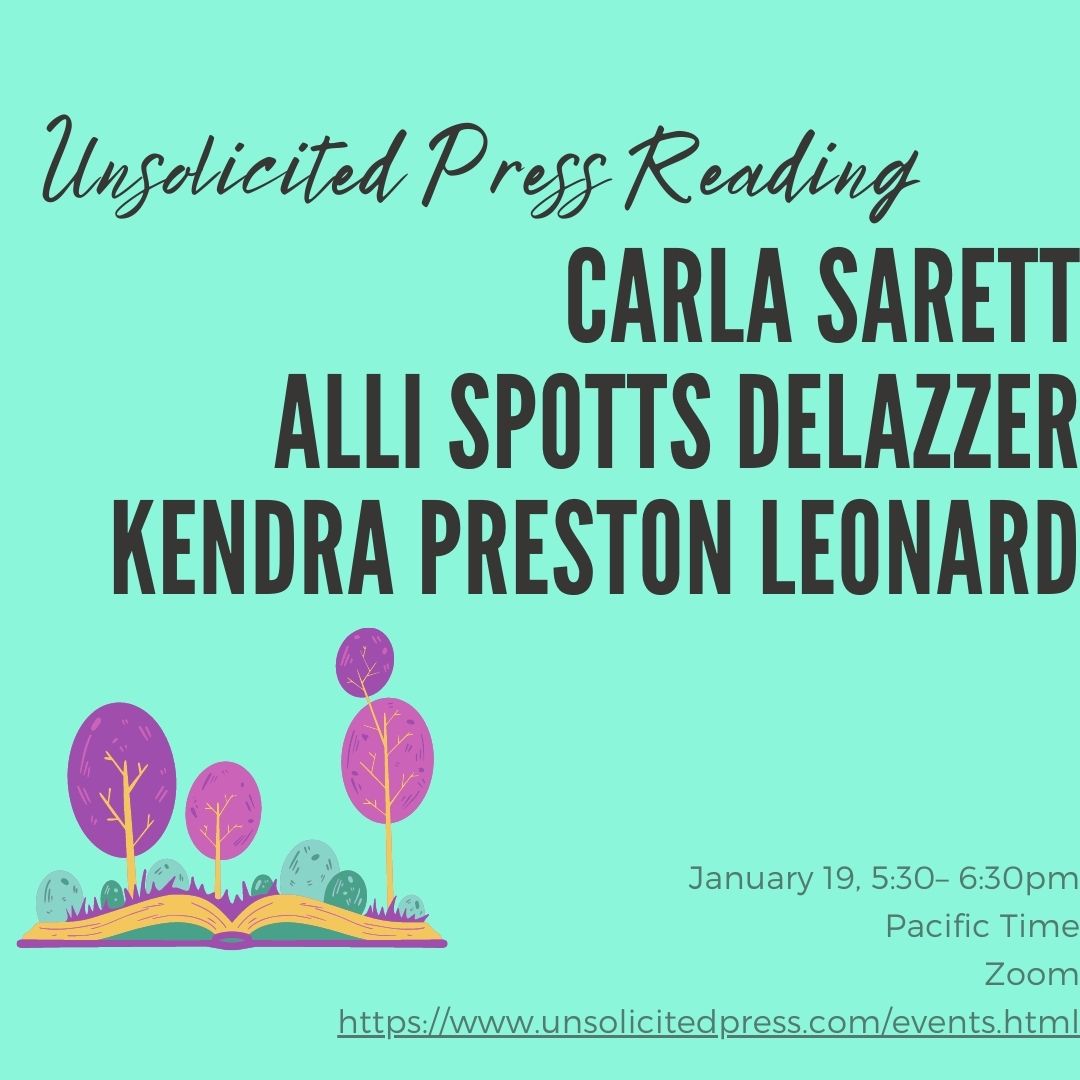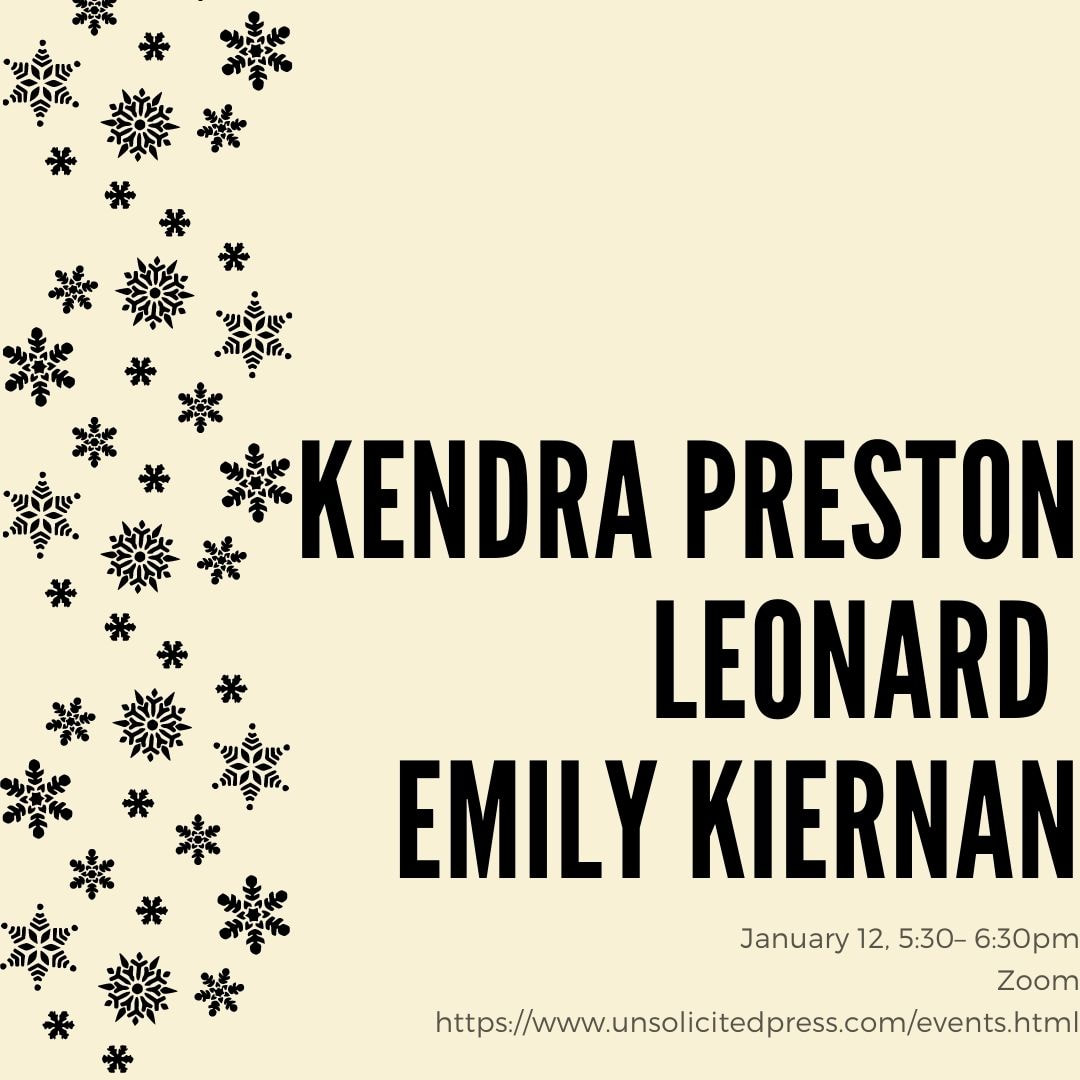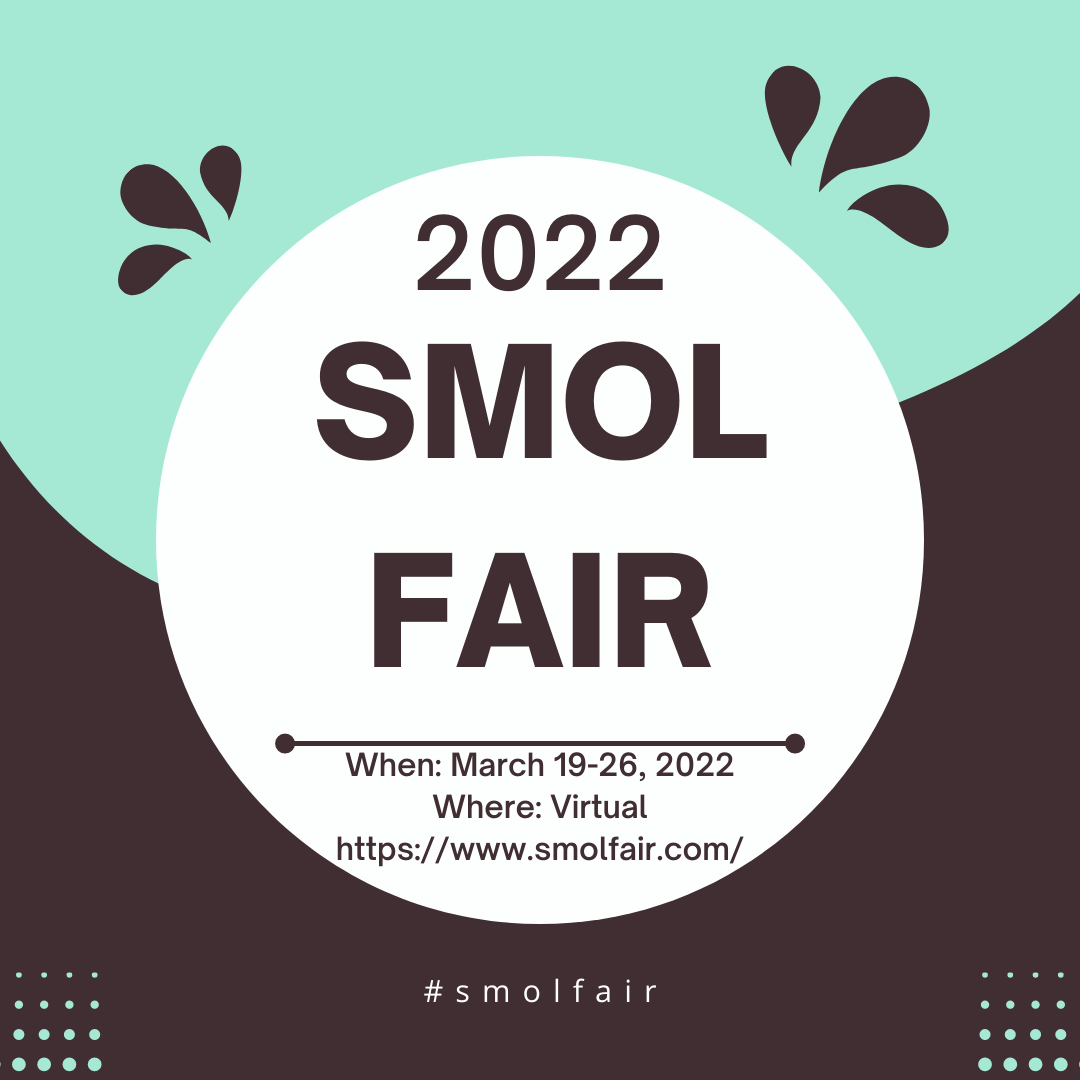Unsolicited Press
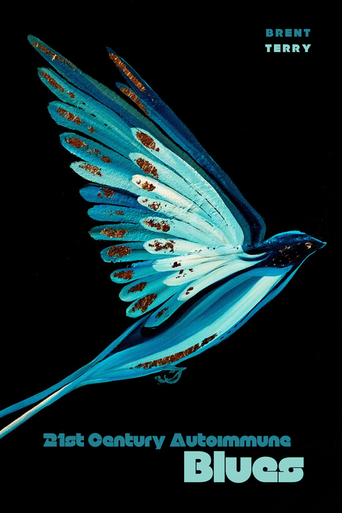 PORTLAND, OR; February 28, 2022-- 21st Century Autoimmune Blues is multi-genre author Brent Terry’s fourth collection. Terry brazenly confronts subjects that are simultaneously political and personal. The undertones range from comedic to emotional, stimulating the head, heart, and gut. Every poem in this collection hums with an underlying anxiety caused by living in these fraught and sometimes dismaying times, but Terry never fails to paint a rhythmically sound image. About Brent Terry Brent Terry has been an elementary school teacher, coach, running store manager and semi-elite runner. His poetry has won several awards and his poems, stories, reviews and journalism have appeared in many periodicals. He is the author of three collections of poetry and hundreds of unused band names. He has more pairs of running shoes than small beaches have grains of sand, and his love of Dr. Pepper is legendary. Terry lives in Connecticut, where he teaches creative writing and literature at Eastern Connecticut State University. Praise for Brent Terry “Brent Terry’s delightful messing around in his new book, with sound, with ideas, with language, with images, it’s always for a serious purpose. His poems record the things of the natural and man-made world while looking into the self, politically and with feeling. “Was there a time before beauty was ironic?“ he asks. He means that, inflicting his intricate wonders with plenty of irony and wit, but also with much real, sincere beauty. These are poems of panache, energy, and just a touch of the right kind of aggression and in all the right directions. “It was the year of weird food and devastation,“ Terry writes. 21st Century Autoimmune Blues is about who we are, who we’ve been recently, and who we Americans have always been.” --Daisy Fried About Unsolicited Press Unsolicited Press was founded in 2012 and is based in Portland, OR. The press strives to produce exceptional works of fiction, nonfiction, and poetry from award-winning authors. Learn more at www.unsolicitedpress.com. 21st Century Autoimmune Blues is available on February 28, 2022 as a paperback (110 p.; 978-1-950730-96-4) and e-book (all major retailers). The title is distributed to the trade by Ingram. ### Press only, Unsolicited Press Eric Rancino 619.354.8005 marketing@unsolicitedpress.com For artist interviews, readings, and podcasts: Brent Terry In just one month we are releasing a long-awaited title from Mark MacDonald and Rachel Elliott: LOVE AND GENETICS. To celebrate the launch, a virtual book launch/reading will be hosted by Annie Bloom's. If you've never been to Annie Bloom's, it's a local bookstore in Multnomah Village. The reading will be held on March 22, 2022 at 5PM PST. You can RSVP here! To support the bookstore, we ask that if you plan on attending the event and buying the book, to purchase a copy from them, if possible. That's the best way we can show our appreciation for supporting authors and small press literature. About the BookWhen a family secret comes to light, lives are changed forever in this honest, beautiful, and sometimes painful memoir. When Mark, adopted at birth, set out to find his genetic family as an adult, he found something he never expected-three full-blood siblings, including a persistent sister who would alter the course of his life. He finds himself faced with the emotional task of coming to know his entire birth family, along with the unintended impact it has on his parents and his marriage. This raises age-old questions around the understanding of his own identity and his place in the world-now framed in extraordinarily real and explicit terms: What defines family? Nature or nurture? Life rarely affords such an opportunity for self-examination. The story focuses on the relationship that develops between Mark and his sister, Rachel, as they discover each other through constant letters and eventual face-to-face meetings. When Rachel learns that Mark and his wife are struggling with having children, a radical idea takes over-could she, a sister he never knew and still barely knows, one who lives on the other side of the country, possibly carry their child? Would they trust her to? Including original correspondence between Rachel, Mark, and their biological mother, Marilyn, Love & Genetics follows the events of a tumultuous year in an astonishing story of love, loss, and the meaning of family. About the AuthorsMark MacDonald is an adjunct professor at Portland State University and a principal engineer at Intel Corporation. He has authored more than forty scientific publications, for which he has received multiple awards, including the Martin Hirschorn Best Paper Prize from the International Acoustics Congress (2010).
Rachel Elliott grew up in the prairies of Alberta, Canada, yet somehow (miraculously) finds herself living outside of Raleigh, North Carolina, and became a US citizen in 2016. She works in mortgage lending and is a voracious reader. Jerrod E. Bohn has an MFA in poetry from Colorado State University. His work has appeared or is soon forthcoming in Phoebe, The Montreal Review, alice blue, FRiGG,Cleaver, SPECS, Word For/Word, smoking glue gun, Watershed Review and elsewhere.
Brent Terry has been an elementary school teacher, coach, running store manager and semi-elite runner. His poetry has won several awards and his poems, stories, reviews and journalism have appeared in many periodicals. He is the author of three collections of poetry and hundreds of unused band names. He has more pairs of running shoes than small beaches have grains of sand, and his love of Dr. Pepper is legendary. Terry lives in Connecticut, where he teaches creative writing and literature at Eastern Connecticut State University. Attend the event through our events calendar. 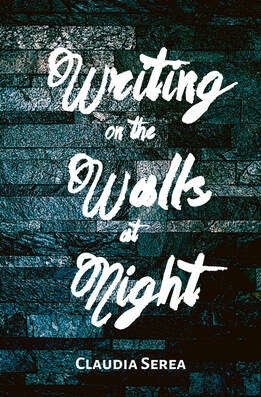 PORTLAND, OR; February 15, 2022— In this new collection of prose poems, Claudia Serea uses surrealism, irony, and humor to express her experiences, from growing up behind the Iron Curtain to immigrating to New York City. The first section of the book, “There Were No Magic Beans,” recalls her childhood in Romania under Nicolae Ceaușescu’s rule, a world in which terror mixes with fairy tales, nightmares, and dreams. The second section, “The Keepers of Moon Keys,” introduces a cast of peculiar characters, including folk tale protagonists, witches, ghosts, a collector of clouds, a bone music maker, a man who paints the time, and the Lord of Meanwhile. In “Dark Calligraphy,” the poet conjures history, remembering war and oppression through the eyes of a child. The reader is guided by a little girl and a museum custodian through the great traumas of recent history. In the last section of the book, “The Russian Hat,” Serea transports the reader into a metropolis as strange as the past she carries with her, to the “museum of our lives,” where “we are the curators, the visitors, and the paintings that paint themselves.” This astonishing place vaguely resembles New York City distorted by memories and dreams, but it might as well be Las Vegas where “what happens in the poem stays in the poem.” In this collection, Serea’s readers win “pound after pound of shiny poems,” the magical beans they will use to escape again and again, discovering hidden meanings with surprise and delight in each new reading. About Claudia Serea Claudia Serea’s poems and translations have been published in Field, New Letters, Prairie Schooner, Notre Dame Review, The Malahat Review, The Puritan, Oxford Poetry, Asymptote, and elsewhere. She is the author of five other poetry collections and four chapbooks, most recently Twoxism, a collaboration with visual artist Maria Haro (8th House Publishing, 2018). Serea’s poem My Father’s Quiet Friends in Prison, 1958-1962 received the New Letters Readers Award. She won the Levure Littéraire Award for Poetry Performance, and she was featured in the documentary Poetry of Witness (2015). Serea’s poems have been translated in French, Italian, Russian, Arabic, and Farsi, and have been featured in The Writer’s Almanac. Her collection of selected poems translated into Arabic, Tonight I’ll Become a Lake into which You’ll Sink, was published in Cairo, Egypt, in 2021. Serea is a founding editor of National Translation Month, and she co-hosts The Red Wheelbarrow Poetry Readings in Rutherford, NJ. Praise for WRITING ON THE WALLS AT NIGHT "Claudia Serea’s world is as available to the senses as words can make it. Wheat, cement, earth, cities, and poppies pass through these poems steadily and true: you can trust them. This memoir is built on the unsparing consistency of Serea’s gaze. A loving gaze. Stop anywhere in this book, it will be a real place." —Andrei Codrescu, author of No Time Like Now (Pitt Series, 2016) "Writing on the Walls at Night deserves to be marveled at. Whether describing the personal or the political, the magical or the real, the bitter or the sweet, Claudia Serea evinces a poetic sensibility that is achingly empathetic and thoroughly authentic. There is not a false note in the entire collection. Indeed, these prose poems are among the most sincere, inventive, and moving being written today." —Howie Good, author of Famous Long Ago "When I say Claudia Serea’s collection is fabulous, I’m using “fabulous” in the Latinate sense of fabula—“known through fable.” These fabulous prose poems conjure the best of fairy and folk tales: This is the night when the girls wash their faces with dew, and watch how the gates of the world open, and the spirits let them see their future. We used to tie our rowboats to the lamp posts, and they floated all night next to our windows, waiting for us to jump in. These are the stories that saucer-eyed audiences gather to hear a poet-witch tell—in deep blue-green forests, under rainbows. These are the yarns our ancestresses spun on cold winter nights when the harvest was done. When I read these fabulae, I’m transported to that place where light weaves the goddesses' dresses of gold. This is a magic book." —Sharon Mesmer, author of Greetings From My Girlie Leisure Place (Bloof Books), professor of creative writing at NYU and the New School "Claudia Serea faces war with a poet’s heart. The explosions are green and they happen in spring /. . .trees shoot up bullet-shaped buds . . . / The magnolia amasses fat grenades . . . Yet in spite all of the violence of Revolution and genocide, there is beauty and power on every page. Like the statues of Lenin that were turned into something useful: wheelbarrows, / shovels, and spades for digging up the past, Serea transforms history into dark fairy tale, into survival, into pages that all of us should read and treasure." —Shaindel Beers, author of Secure Your Own Mask, Finalist for the Oregon Book Award About Unsolicited Press Unsolicited Press was founded in 2012 and is based in Portland, OR. The press strives to produce exceptional works of fiction, nonfiction, and poetry from award-winning authors. Learn more at www.unsolicitedpress.com. WRITING ON THE WALLS AT NIGHT is available on February 15, 2022 as a paperback (178 p.; 978-1-956692-01-3) and e-book (all major retailers). The title is distributed to the trade by Ingram. ### Press only, Unsolicited Press Eric Rancino 619.354.8005 marketing@unsolicitedpress.com For artist interviews, readings, and podcasts: Claudia Serea If you could cook dinner for any author, dead or alive, who would it be? What would you make?
It seems most writers, or at least the twentieth century sort I’m familiar with, have a tendency to put off dinner in favor of a prolonged cocktail hour. So maybe not so much cooking, but mixing and pouring… That said, I’d love to chat with Paul Theroux. He’s been everywhere and written so much and so eloquently. As for all the dead ones, nah. They’d likely resent being dragged back to this overheated realm just to hang out with me. What scares you the most about the writing process? How do you combat your fears? I’m not sure anything about the writing process scares me, per se, but failing to do justice to a great character or idea is certainly a worry: bobbling what should’ve been a slam-dunk, I mean. To combat this, I remind myself that writing is revision, and that time isn’t always the enemy. What doesn’t quite work today may well find its natural footing tomorrow. What books are on your nightstand? The Rock Cycle: Essays by Kevin Honold American Copper by Shann Ray Delights & Shadows by Ted Kooser Having and Being Had by Eula Biss Favorite punctuation mark? Why? As a writer of nonfiction who seeks to gain new understanding of the world as observer and participant, I’d have to go with the question mark, as it succinctly embodies the form. What book were you supposed to read in high school, but never did? Unfortunately, there are too many neglected books to name. As a kid, I was obsessed with basketball and being an athlete. It wasn’t until all of that ended that I became a dedicated reader. On the plus side, the discipline that you learn playing sports is good training for being a writer. What inanimate object would you thank in your acknowledgements? The coffee-maker, first off. But also the beer fridge. If you could write an inspirational quote on the mirrors of aspiring writers, what would you write? Abandon all hope, ye who enter here…? No, just kidding. But if aspiring writers have the correct mindset, they won’t put much stock in easy inspiration. Does writing energize or exhaust you? Both. The energized feeling is wonderful, that buzz of flowing words, the escape into the self. But the exhausting part is trickier. It never lets up, even as you improve. The reason? Because to continue improving as a writer, you have to push your boundaries and constantly work at the edge of your talent. So even though you have gotten demonstrably better, the act of writing never gets much easier. What are common traps for aspiring writers? Booze, most notoriously. That and material ambitions. And not reading enough, or trying to duck the classics, the difficult and time-consuming stuff. What is your writing Kryptonite? Like most writers, my writing Kryptonite is all the non-writing work that’s necessary to support my writing habit. Then again, that stuff is also grist for the mill. Have you ever gotten reader’s block? No. I’m skeptical of the diagnosis. Do you think someone could be a writer if they don’t feel emotions strongly? Probably not, or at least not a writer of quality fiction or memoir. That’s not to say a writer couldn’t be very reserved, very private, but genuinely cold? I doubt it. Do you want each book to stand on its own, or are you trying to build a body of work with connections between each book? Interesting question, as it seems that one author writing multiple books, unless those books were vastly different in subject and scope, almost couldn’t help but leave some overlap, some connections. What was an early experience where you learned that language had power? Growing up, my parents operated and published a small-town newspaper in the rural Midwest, and it seemed our neighbors were always either chuckling over my mother’s lighthearted column about our home life, or cursing about my father’s hardheaded political editorials. So I’ve always known that words have power, though I view it somewhat differently now, more personally. What’s your favorite under-appreciated novel? I don’t know if we can rightly call Russell Banks under-appreciated, considering his name is known and he publishes widely, but his novel Continental Drift should be read by more people. It’s extraordinary. As a writer, what would you choose as your mascot/avatar/spirit animal? A black cat, as these animals seem to keep finding their way into my life. What do you owe the real people upon whom you base your characters? Anonymity, for sure. And quite possibly a beer and a private talk, depending. But not much else. Fiction is fiction; end of story. How many unpublished and half-finished books do you have? Three currently, sadly, crushingly. What does literary success look like to you? That’s somewhat difficult to answer amid a wider culture that seems to view writing books as an esoteric hobby at best, not to mention a publishing industry with ever-narrower tastes and ever-tightening purse strings. If pressed, I’d point to the internal. If you’re consistently writing and publishing, and if you’re proud of your work line-by-line and as a whole, that’s success. What did you edit out of this book? A number of accounts of visits to very good breweries, where unfortunately no one did or said anything particularly weird, shocking, or funny, and also a ton of fascinating stuff from Burton’s Anatomy of Melancholy that I couldn’t figure out how to shoehorn in. If you didn’t write, what would you do for work? Well, I write and I work, so I suppose I’d continue to be a teacher and a bartender, though probably a less interesting, less dynamic version of both. Without writing, the real question would be: how in the hell to spend my mornings? Claudia Serea’s poems and translations have been published in Field, New Letters, Prairie Schooner, Notre Dame Review, The Malahat Review, The Puritan, Oxford Poetry, Asymptote, and elsewhere. She is the author of five other poetry collections and four chapbooks, most recently Twoxism, a collaboration with visual artist Maria Haro (8th House Publishing, 2018). Serea’s poem My Father’s Quiet Friends in Prison, 1958-1962 received the New Letters Readers Award. She won the Levure Littéraire Award for Poetry Performance, and she was featured in the documentary Poetry of Witness (2015). Serea’s poems have been translated in French, Italian, Arabic, and Farsi, and have been featured in The Writer’s Almanac. Her collection of selected poems translated into Arabic, Tonight I’ll Become a Lake into which You’ll Sink, was published in Cairo, Egypt, in 2021. Serea is a founding editor of National Translation Month, and she co-hosts The Red Wheelbarrow Poetry Readings in Rutherford, NJ.
Darci Schummer is a writer and educator living in Duluth, Minnesota. Primarily a fiction writer, she is the author of the story collection Six Months in the Midwest (Unsolicited Press), co-author of the poetry/prose collaboration Hinge (broadcraft press), and her work has appeared in Ninth Letter (web edition), Folio, Jet Fuel Review, Matchbook, American Fiction 17, Necessary Fiction, Midway Journal, Paper Darts, and Pithead Chapel, among other places. She has been nominated both for the Pushcart Prize and Best of the Net, and her work has also been selected as a Longform Fiction Pick of the Week. She teaches writing and edits The Thunderbird Review at Fond du Lac Tribal and Community College and lives in a big old house with her husband Tanner, pitbull Turnip, and cat Cokie Roberts. Currently, Darci is working on a novel, another short story collection, and a chapbook of poetry. 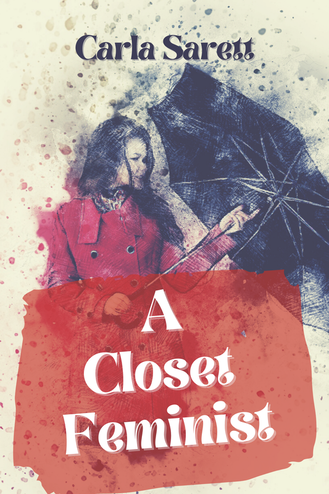 PORTLAND, OR; February 9, 2022— A CLOSET FEMINIST follows the misadventures of 20-something Bella Hirsch as she navigates the world of work and the mystery of sudden romance. Bella hops from New York’s whirlwind to a tony grad school in Philadelphia, and discovers not just love, but a surprising ambition. Fast-paced and witty, this is a romantic comedy with a morality tale wrapped inside. About Carla Sarett Carla Sarett is a poet, essayist and fiction writer based in San Francisco. Her work has appeared in Thimble, Blue Unicorn, San Pedro River Review, Naugatuck River Review, ONE Art, Hobart Pulp, Across the Margins, Prole and elsewhere; her essays have been nominated for the Pushcart Prize and Best American Essays. THE LOOKING GLASS, a novella, (Propertius Press) was published in October, 2021. Carla has a Ph.D. from University of Pennsylvania. A CLOSET FEMINIST is her debut novel. Praise for A CLOSET FEMINIST "Sarett’s penetrating observation couples with her sparkling prose to bring new life and vigour to the popular theme of reinvention of the self. Warm, funny and a wonderful read from both the entertainment and the literary point of view, A Closet Feminist crackles with life on every rapidly-turning page."--Tabitha Ormiston-Smith, author of Barefoot Tango "I'm in love with Bella. She's satrical. She's self-deprecating. She's in love and she's in trouble. And somehow, despite her sense of being moderately ordinary except for her taste in vintage dresses, a trio of gorgeous, creative and successful men share my reaction to Bella, the heroine of Carla Sarett's brilliantly funny and romantic novel A Closet Feminist. They're all in love with Bella." --Dan Essman, author An Apostle at the Kit Kat About Unsolicited Press Unsolicited Press was founded in 2012 and is based in Portland, OR. The press strives to produce exceptional works of fiction, nonfiction, and poetry from award-winning authors. Learn more at www.unsolicitedpress.com. A CLOSET FEMINIST is available on February 9, 2022 as a paperback (232 p.; 978-1-956692-02-0) and e-book (all major retailers). The title is distributed to the trade by Ingram. ### Press only, Unsolicited Press Eric Rancino 619.354.8005 marketing@unsolicitedpress.com For artist interviews, readings, and podcasts: Carla Sarett Douglas Cole has published four collections of poetry. His work appears in journals such as The Chicago Quarterly Review, Chiron, The Galway Review, The Pinyon Review, Solstice, Eastern Iowa Review, Kentucky Review, Wisconsin Review, and Slipstream. He has been nominated for a Pushcart and Best of the Net, and has received the Leslie Hunt Memorial Prize in Poetry; the Best of Poetry Award from Clapboard House; First Prize in the “Picture Worth 500 Words” from Tattoo Highway. His website is douglastcole.com. Dan Gutstein is the author of non/fiction (stories, 2010), Bloodcoal & Honey (poems, 2011), and Buildings Without Murders (novel, 2020). His writing has appeared in more than 100 journals and anthologies, including Ploughshares, American Scholar, Best American Poetry, The Penguin Book of the Sonnet, TriQuarterly, The Iowa Review, and Prairie Schooner. He has been the recipient of grants and awards from the Bread Loaf Writers’ Conference, the Maryland State Arts Council, and the University of Michigan, where he was a Colby Fellow. In addition to writing activities, he is vocalist for punk-jazz band Joy on Fire, who will be performing a Tiny Desk Concert at NPR in July 2020, and co-director of a forthcoming documentary film, Li’l Liza Jane: A Movie About A Song. At present, he is a nomad, dividing his time between the crashable couches of Trenton, N.J. and other scenic overlooks. If you could cook dinner for any author, dead or alive, who would it be? What would you make?
The ghost of Clarice Lispector. Although, whatever I make, she rejects. So, we call out for delivery and she orders something -- apple turnovers -- that aren’t on the menu, and lots of them! The restaurant is terrified, but they comply. What scares you the most about the writing process? How do you combat your fears? That the thing will suck, after I’ve written it, and after I’ve revised it. I often combat my fears by drinking a stout or two. In all seriousness, there is no combatting this particular fear -- except to keep on writing. The more chances you give yourself -- to not suck -- the greater your chances are of not sucking. Who is your biggest literary crush, author or character? I can’t answer this question honestly. The safe answer would be the character Anna Karenina. Is that crazy or what? Maybe Faye Greener from The Day of the Locust. The fiction writer Lucia Berlin, maybe. There is a living writer, (at least I think she’s still alive), who nearly jumped off my old rooftop, but I can’t say what her name is, fml. What books are on your nightstand? Margaret Walker’s novel Jubilee. Sandra Simonds’ poetry collection Warsaw Bikini. A good friend sent me some Japanese novels. Carl Sandburg’s folk music collection The American Songbag. Well, that’s not quite true. It’s a PDF, that’s on my computer, which is on my nightstand. Favorite punctuation mark? Why? The parentheses because they’re very suggestive. What book were you supposed to read in high school, but never did? There were quite a few. MacBeth was one. I read it later. It’s a blast. What inanimate object would you thank in your acknowledgements? I couldn’t think of anything and then for some reason my mind said “Potato masher.” Why not? Love the “puree.” If you could write an inspirational quote on the mirrors of aspiring writers, what would you write? That’s a lot of mirrors. I’d probably keep it short, to save time: “You Are Closer Than You Actually Appear.” Does writing energize or exhaust you? Writing is exhausting, but revision is energizing. What are common traps for aspiring writers? Defensiveness. Especially the one that goes “This really happened.” Just because it may have transpired doesn’t necessarily make it a good piece of writing. What is your writing Kryptonite? My colossal weakness for mischief-making. Have you ever gotten reader’s block? No. Do you think someone could be a writer if they don’t feel emotions strongly? Yes and no. Yes, because they could feel those emotions for, say, a “colder” thing like language, which would actually make language warm, ha ha. But if they felt no emotions at all, that would be pretty tough. What other authors are you friends with, and how do they help you become a better writer? I used to know only, like, poets and fiction writers. But in the past couple years, I’ve become friends with people who’ve written scholarship books, and this form of writing turns out to be incredibly difficult and admirable. But to answer the question, let’s take my friend Rod Smith, the nutty experimental poet. The key thing about Rod, though, is that every so often, he gets serious and it’s surprising, and effective. He says “doot doo” and he sneaks up on you, and gets you good. Do you want each book to stand on its own, or are you trying to build a body of work with connections between each book? Each book has to stand on its own. Occasionally, you need to pick it up and fend off some kind of avant garde attack. It’s good to have a sturdy book, in hand. How did publishing your first book change your process of writing? A first book is a real treasure, because it’s amazing to have something in your hands, to show friends and family. At the same time, you put yourself out there, and if it’s not perfect, which it isn’t, you’re sort of baring your soul, publicly. So, what happens is, the next books become a quest to master the form of the book, if that’s even possible. What was the best money you ever spent as a writer? My mind said things like Coltrane records and fresh ginger. Wtf? You’d have to say Coltrane records, but ginger is very good, mmmmm. What authors did you dislike at first but grew into? Virtually all of them. The thing is, you have to be skeptical, because if you do the opposite, if you just love everything, then you might as well strip off your clothes and run amok in the middle of the big city. Perhaps it was the language poets, though, most of all. I thought that was bullshit at first, but then some of the writing really struck me as being -- precisely the kind of thing -- that enables language to evolve. And that really is the work of poetry. What was an early experience where you learned that language had power? Well, it’s mostly about rejection. I mean, the language of rejection is powerful. Debilitating, really, but it’s also powerful to agitate against rejection. Lots of electricity in that dynamic. What’s your favorite under-appreciated novel? That’s a tough one. Maybe Trout Fishing in America by Richard Brautigan? As a writer, what would you choose as your mascot/avatar/spirit animal? The fox. I actually have a fox friend. During the pandemic, this happened. She used to wait for me every evening when I’d go out for a run or a walk. She’d just be waiting near the woods, with that big tail curled behind her. Just brilliant stuff. And then we’d jog along together for a little while until she drifted off. Once, I got within a few feet of her and she nibbled my hand, briefly. Magic. What do you owe the real people upon whom you base your characters? Absolutely nothing, hahahaha. How many unpublished and half-finished books do you have? Too many to count. Most writers are like this. You’ve just got to be practical and keep pressing forward, take chunks of this and bits of that, and fashion it all together in the best combinations. “Be ruthless in your practicality.” What does literary success look like to you? Too many people associate success with money and in the end that is the dumbest thing I’ve ever heard. The vast majority of big money books really blow, but I guess the authors are comfortable. The answer is -- a risk-taking book that’s really tight. Very hard to come by. What’s the best way to market your books? Readings. Be a performer! What’s the most difficult thing about writing characters from the opposite sex? You start to desire them, romantically. It gets kind of frustrating. What did you edit out of this book? Mostly, what you guys didn’t like. Hahaha. No, I think we dropped some loose language and vague kind of stuff. I really appreciated the feedback! If you didn’t write, what would you do for work? Something that involves robes and lotions. No, in all seriousness, I’d probably be a professional potato masher. PORTLAND, OR; February 2, 2022-- Our topnotch team of data-driven barflies has been puzzling-out, nay, teasing-out the concentric layers inherent to Metacarpalism, by examining the thing’s, ehh, annual rings. Or maybe Metacarpalism functions as a series of intersecting circles -- kind of like the rings left by our shot glasses on the bar. Because, yes! You’ve got a self-referential (“Meta”) exploration of applause (“carpal”) aligning itself with (“ism”) a tender, tender moment [c.f., “love making”] that nevertheless flips us off. And there you are, atmospherically speaking: popsicle flubbers.
Okay, let’s try this again. We’ve been meaning to discuss with you the whereabouts of the potato masher. Look: please: please: tell us, tell us immediately where you placed it, because by now, we are worried for its safety. We would like to restore the device to its rightful place on the granite countertop beside the lone ripening pluot. Does this ring a bell bottom? In short, Metacarpalism offers you cotton tube socks (with the ridiculous green stripes) when you require a change of t-shirt. It’s three a.m. You can see your breath. Above you, a preposterous ruckus of blue jays caucuses amid the alloys of their copious disagreements. You could receive one parcel of nibbled government stimulus fromage or one parcel of nibbled government stimulus crayons. When along comes Metacarpalism via Media Mail. Nibbled! The days are growing longer and just maybe, this book has anticipated your request. Just maybe, all will be forgiven. About Dan Gutstein Dan Gutstein is the author of non/fiction (stories, 2010), Bloodcoal & Honey (poems, 2011), and Buildings Without Murders (novel, 2020). His writing has appeared in more than 100 journals and anthologies, including Ploughshares, American Scholar, Best American Poetry, The Penguin Book of the Sonnet, TriQuarterly, The Iowa Review, and Prairie Schooner. He has been the recipient of grants and awards from the Bread Loaf Writers’ Conference, the Maryland State Arts Council, UnitedStatesArtists, Women in Film & Video, and Emory University. In addition to writing activities, he is vocalist for punk band Joy on Fire, who will be performing a Tiny Desk Concert at NPR, and co-director of a forthcoming documentary film, Li’l Liza Jane: The Story of America Through the History of a Song. At present, he is a nomad, dividing his time between the crashable couches of Trenton, N.J. and other scenic overlooks. About Unsolicited Press Unsolicited Press was founded in 2012 and is based in Portland, OR. The press strives to produce exceptional works of fiction, nonfiction, and poetry from award-winning authors. Learn more at www.unsolicitedpress.com. The publisher can be followed on Instagram and Twitter: @unsolicitedp METACARPALISM is available on February 2, 2022 as a paperback (98 p.; 978-1-956692-05-1) and e-book (all major retailers). The title is distributed to the trade by Ingram. The author is open to speaking with the media, holding readings, and engaging in other author opportunities. ### Press only, Unsolicited Press Eric Rancino 619.354.8005 marketing@unsolicitedpress.com Who is your biggest literary crush, author or character?
Muriel Spark is my idol, she is funny and lyrical and everything a writer should be. What books are on your nightstand? P.G. Wodehouse for laughter. And lots of poetry-- from Shakespeare to Robert Frost to Louise Gluck. My heroine quotes a lot or poetry, and so do I when I’m not writing it. Favorite punctuation mark? Why? SEMICOLON because it’s rarely used these day. I don’t admire short choppy sentences all that much. . If you could write an inspirational quote on the mirrors of aspiring writers, what would you write? Read as much as possible, and then read more. Don’t think, don’t take a course, just write. What are common traps for aspiring writers? Wordiness and trying to use fancy words when plain ones work fine. What is your writing Kryptonite? READING! And also listening to music. Have you ever gotten writer’s block? No, I just write something different. Sometimes, writing needs to be put aside, and I work on a completely different sort of piece. Do you think someone could be a writer if they don’t feel emotions strongly? I assume we’re talking fiction. I don’t think all fiction is highly emotional-- science fiction, for example, often depends on ideas, not feelings. But my kind of writing does depend on feeling. I often laugh and cry as I am writing dialogue. Do you want each book to stand on its own, or are you trying to build a body of work with connections between each book? On its own, I hope. I write in many different genres, including poetry, but astute readers can find links-- movies, for example, flow through everything. What authors did you dislike at first but grew into? Agatha Christie. I hated her as a young woman, but now I enjoy her tight plots and wonderful sense of humor. What was an early experience where you learned that language had power? My older brother read me Edgar Allen Poe at bedtime, and wow, that was it. What’s your favorite under-appreciated novel? Oooh, many, but I highly recommend MISS MOLE by E.H. Young, which is feminist, and soulful, and also, bravely has an optimistic ending. What’s the most difficult thing about writing characters from the opposite sex? I enjoy writing men, and feel sort gender-fluid when I am writing from a male POV. I think all fiction writers have this gender-switching trick in their brain. I think many male writers like Henry James write terrific women. What did you edit out of this book? This book was shortened considerably from its original version. I took out a lot of chapters that were funny, yes, but didn’t move the plot along. I’m ruthless when it comes to editing. If you didn’t write, what would you do for work? I did work successfully as a market researcher, and I enjoyed it very much. Like Bella in Closet Feminist, I have an analytical mind, and like using it. Market research involves understanding people, just in a different way from fiction writing. 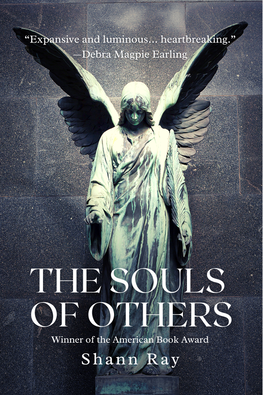 PORTLAND, OR; January 31, 2022-- The Souls of Others is a powerful essay collection by American Book Award winner Shann Ray. Ray depicts the American west as both magnificent and destitute. The mountains are alive. The people are gritty and resilient. Nature offers its bounty but never gives it with ease. Ray, having spent part of his childhood on the Northern Cheyenne reservation, expertly paints a place of family, sorrow, and a connection to Mother Nature that so many Americans have lost. About Shann Ray Poet, short story writer, and novelist Shann Ray grew up in Montana and Alaska and spent part of his childhood on the Northern Cheyenne reservation. His work has been featured in Poetry, Esquire, McSweeney's, Prairie Schooner, Big Sky Journal, Narrative, and Salon. A National Endowment for the Arts Fellow and winner of the American Book Award and the High Plains Book Award, he is the author of American Masculine, American Copper, Atomic Theory 432, Balefire, Sweetclover, and Forgiveness and Power in the Age of Atrocity. A clinical psychologist specializing in the psychology of men, he teaches leadership and forgiveness studies at Gonzaga University. Because of his wife and three daughters, he believes in love. About Unsolicited Press Unsolicited Press was founded in 2012 and is based in Portland, OR. The press strives to produce exceptional works of fiction, nonfiction, and poetry from award-winning authors. Learn more at www.unsolicitedpress.com. The publisher can be followed on Instagram and Twitter: @unsolicitedp The Souls of Others is available on January 31, 2022 as a paperback (266 p.; 978-1-956692-00-6) and e-book (all major retailers). The title is distributed to the trade by Ingram. The author is open to speaking with the media, holding readings, and engaging in other author opportunities. Poet, short story writer, and novelist Shann Ray grew up in Montana and Alaska and spent part of his childhood on the Northern Cheyenne reservation. His work has been featured in Poetry, Esquire, McSweeney's, Prairie Schooner, Big Sky Journal, Narrative, and Salon. A National Endowment for the Arts Fellow and winner of the American Book Award and the High Plains Book Award, he is the author of American Masculine, American Copper, Atomic Theory 432, Balefire, Sweetclover, and Forgiveness and Power in the Age of Atrocity. A clinical psychologist specializing in the psychology of men, he teaches leadership and forgiveness studies at Gonzaga University. Because of his wife and three daughters, he believes in love.
Mike Dillon’s Bainbridge Island roots reach back four generations. He lives in Indianola, Washington, a small town on Puget Sound a few miles north of Bainbridge and twelve miles northwest of Seattle. Four books of his poetry have been published by Bellowing Ark Press, including “That Which We Have Named,” (2008). Red Moon Press has published three books of his haiku, including “The Road Behind” (2003). Several of his haiku were included in “Haiku in English: The First Hundred Years,” W.W. Norton (2013). He is a retired publisher of community newspapers, a field he entered inspired by the example of Walt and Milly Woodward, who defended their Japanese American neighbors in the pages of their newspaper, the Bainbridge Review, during World War II. In 2013 the Washington Newspaper Publishers Association recognized Dillon with its Master Editor/Publisher award. 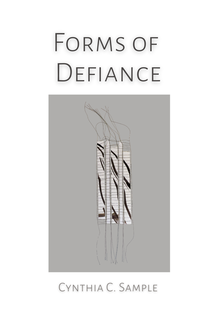 PORTLAND, OR; January 25, 2022— An ancient proverb claims that “Every man’s way is right in his own eyes.” Such is reflected in the various ways people tell themselves their own stories and the meaning within their experiences, but actual revelation of characters’ tales defy the traditional methods of the telling. Cynthia C. Sample's Forms of Defiance presents a broad variety of people caught in the complexities of their humanity, revealing their narratives, even to themselves according to their peculiarities – Bible concordance entries, playlists, poems, diaries and others – while dissecting the human complexities they are experiencing, and making choices about them. About Cynthia C. Sample Stories from Dallas native, Cynthia C. Sample, have appeared in NumeroCinq, Summerset Review, Sleet, Blue Lake Review, Starlight Literary Journal and others. She holds an M.F.A. in Fiction from Vermont College and a Ph.D. in finance from University of Texas at Dallas. Praise for FORMS OF DEFIANCE Cynthia Sample’s quirky and outrageously insightful stories sing with a voice so particular and peculiar that the reader can’t help but be seduced. I was. One after another, story after story, Sample entertains us, all the while sneakily investigating and laying bare all the secrets of humanity. I’ve never read anything like these – and I only want more. --Robin Oliviera In one of the stories in this stunning debut collection, Cynthia C. Sample invokes the astronomical concept of parallax when describing a documentary her protagonist watches at an observatory: “The camera pulls back over and over again,” she writes, “each time showing what the universe looks like from that imagined vantage point.” Forms of Defiance gives us fifty-three parallactic views on another kind of universe, the universe of fears, desires, hopes, and secrets inside us all. Her book is brilliantly original, fiercely honest, and laced with a wise and heartbreaking wit. In short, it’s the real thing: a book that truly matters. I urge you to read it and share it with those you love. --David Jauss Some writers work with hammers, some with shovels, still others with pitchforks or chainsaws. Cynthia Sample's tool of choice is the scalpel, an instrument she wields to thrilling, deliciously wicked effect in Forms of Defiance. Each story in this stellar collection aims true and cuts deep, laying open the essential inner workings of our all too human selves. Unnerving at times, and delightful all of the time, Forms of Defiance is a work of masterful literary dissection. --Ben Fountain Forms of Defiance is a restless, eccentric, witty book of stories that defy definition. Some stories are shorter than their titles. One is a list of Bible verses. One is a prayer diary. One is an essay about coffins. One consists of a recorded tornado warning alert. Cynthia Sample defies form by borrowing forms. The results are astonishing—astringently ironic, yet intimate. She is a mistress of the killer one-liner. And at the heart of every character is a special kind of bravado in the face of what life throws at us. --Douglas Glover About Unsolicited Press Unsolicited Press was founded in 2012 and is based in Portland, OR. The press strives to produce exceptional works of fiction, nonfiction, and poetry from award-winning authors. Learn more at www.unsolicitedpress.com. FORMS OF DEFIANCE is available on January 25, 2022 as a paperback (178 p.; 978-1-950730-91-9) and e-book (all major retailers). The title is distributed to the trade by Ingram. ### Press only, Unsolicited Press Eric Rancino 619.354.8005 marketing@unsolicitedpress.com For artist interviews, readings, and podcasts: Cynthia C. Sample Stories from Dallas native, Cynthia C. Sample, have appeared in NumeroCinq, Summerset Review, Sleet, Blue Lake Review, Starlight Literary Journal and others. She holds an M.F.A. in Fiction from Vermont College and a Ph.D. in finance from University of Texas at Dallas.
Ellie White has been over-dramatic since 1986. She holds a BA in English from The Ohio State University, and an MFA from Old Dominion University. Ellie writes nonfiction and poetry. She is also the creator of the comic strip “Uterus & Ellie.” Her work has been published in Foundry, Slant, and The Columbia Review, as well as many other journals. Ellie’s first poetry chapbook, Requiem for a Doll, won the ELJ Publications Poetry Mini-Collection Contest was released in June 2015. Her second chapbook, Drift, is forthcoming from Dancing Girl Press in Fall 2019. This is her first full-length collection. Ellie’s work has won an Academy of American Poets College Poetry Prize, a Best of the Net nomination, and several Pushcart Prize nominations. Ellie served as a poetry editor at Barely South Review for three years. She also served as a nonfiction and poetry editor for Four Ties Literary Review for two years. Ellie is currently a social media editor and reader at Muzzle Magazine. She lives in Charlottesville, Virginia and works full-time in the insurance industry. Head to the Events calendar to join the reading. It's free and fun! If you could cook dinner for any author, dead or alive, who would it be? What would you make?
Oooh, I would host a garden party and invite my favorite authors from everywhere in the world: Anna Akhmatova, Sylvia Plath, Charles Simic, Tomas Tranströmer, Andrei Codrescu, Sharon Mesmer, Mircea Cartarescu, Ioan Es. Pop, Cristian Popescu, Walt Whitman, James Wright, Stanley Kunitz, William Carlos Williams, Anne Sexton, Peter Balakian, Mircea Eliade, Gabriel Garcia Marquez, Mario Vargas Llosa, Milan Kundera, Vladimir Nabokov, Herta Muller. My husband would make pomegranate cocktails and beautiful steaks. We’d serve some delicious Romanian appetizers as well, icre, zacusca, salata de vinete, crumbly telemea with fresh bread and gorgeous ripe tomatoes. The red wine would flow, and we’d get drunk, that’s for sure. What scares you the most about the writing process? How do you combat your fears? A lot of things scare me and get in the way: The lack of time to write or edit. The fear of commitment to produce longer pieces, or to write prose. How long it takes to publish a book and losing the initial enthusiasm for a project along the way. Impostor syndrome. I don’t have solutions for these fears. My answer is to progress slower, to let time resolve some of these problems. Sometimes just a slower pace helps, or just to take a break, do some gardening, watch the dahlias bloom. Who is your biggest literary crush, author, or character? Hmm, not a crush, but someone I admire greatly is Charles Simic. I read almost everything he wrote and didn’t find one book that didn’t speak to me. But my favorite of all time is The World Never Ends, the book that opened my eyes to prose poetry, to surrealism, weirdness, and dark humor, and how these devices can help to come to terms with history, oppression, and all the horrors invented by humans. We share the same Eastern European dark soul, that’s why. What books are on your nightstand? My favorite books this year: In the Lateness of the World by Carolyn Forché; Jane Hirshfield’s Ledger; Music for the Dead and Resurrected by Valzhyna Mort; Rules for Rearrangement by Julie Babcock; Carnation and Tenebrae Candle by Marosa Di Giorgio, next to an old favorite, Sad Days of Light by Peter Balakian. Next to a few collections by Romanian poets I got in Bucharest this year: new books by Svetlana Carstean, Nora Iuga, and Mihail Vakulovski. Favorite punctuation mark? Why? It has to be the comma because it signifies the pause when you take a breath. Everyone should know when they can breathe, right? I read aloud my poems to find out where the line breaks and commas should be, a technique I learned from William Carlos Williams and my poetry workshop teacher, Jim Klein, who is a big fan and enforcer of commas. Sometimes I get a little crazy about commas, too, lol. Especially the serial comma. It’s a really important punctuation mark. What book were you supposed to read in high school, but never did? I went to high school in Romania under the communist regime, and I read everything I could, required and not required. I exhausted my city’s central library and the very nice librarian who used to put books aside for me and allow me to check out unlimited stacks of books. What inanimate object would you thank in your acknowledgements? I would like to thank the New Jersey Transit Bus 190 where I wrote most of my poems. I used to commute daily between Rutherford, New Jersey, and New York City, 1 hour each way. It was my only time to read and write poems, my writing routine for 18 years before the pandemic. I never thought I would say this, but I miss my commute. I miss that time dedicated to thinking, daydreaming, and writing without interruptions. If you could write an inspirational quote on the mirrors of aspiring writers, what would you write? Don’t write for anyone else but for yourself. The crazier, the better. Does writing energizes or exhausts you? Writing is exhilarating—but editing is exhausting. I work in bursts, short periods of energy and inspiration, followed by long, procrastinating periods of revising. It’s cyclical, but I always crave to write more and care less about editing or style. What are common traps for aspiring writers? Too much learning about poetry and not enough honest writing. Chasing trends in topics, form, or techniques, instead of just letting go on the page. Trying too hard instead of using a light touch. What is your writing Kryptonite? Being at home during the pandemic. Like I said, I used to write on my bus commute, and I was so productive and focused, churning out new work every week at a high pace for years. The pandemic changed that, and I’m still trying to get into a new writing routine, but it doesn’t work the same way. I haven’t been able to focus any longer from home. Have you ever gotten reader’s block? No. I always have exciting things to read. I have writer’s block many times, that’s another story. Do you think someone could be a writer if they don’t feel emotions strongly? Yes, there are clever ways to plan, structure, and develop your piece around a concept that can be very interesting, new, or exciting. If it’s done well, it’s possible. What other authors are you friends with, and how do they help you become a better writer? I belong to the group The Red Wheelbarrow Poets, a terrific group of poets from Northern New Jersey who hold a poetry workshop every week. It’s very valuable to workshop a poem or piece to see what works and what doesn’t, and frankly just to keep writing something new every week. Do you want each book to stand on its own, or are you trying to build a body of work with connections between each book? I don’t want to bore my readers, so I always strive to make each book different, stronger, and better than the last one. I love surprises, so I hide some inside each book. There are, of course, common themes, like history, immigration, and family—but each book tells a different story. I don’t want to be one of those poets who write the same poem or book all their life. How did publishing your first book change your process of writing? My first collection was the chapbook Eternity’s Orthography published by Finishing Line Press in 2007. It encouraged me tremendously. I had just started to write poems in English, and I was timid, with a minimalistic style that reflected my apprehension towards the language. When that tiny chapbook got published, it told me that I could do this. I felt that I conquered language, I conquered English, ladies and gentlemen! It was a great victory. What was the best money you ever spent as a writer? On poetry books! I usually get poetry books for Christmas and for my birthday. I’m addicted to poetry books. There are so many great poets living and writing today, and it’s so exciting to discover them. What authors did you dislike at first but grew into? James Joyce comes to mind. Emily Dickinson and her m-dashes that I found pretentious. Even William Carlos Williams—I didn’t get his poetry at first, but then I felt so lucky to have moved to his hometown in NJ and encountered this group of poets who carry on his legacy. It just happened by accident. How lucky to immigrate from Romania and stumble into so much great poetry in Rutherford, NJ, of all places. What was an early experience where you learned that language had power? I started to write poems in high school, and no one read them but my best friend, Ioana. In my first year of college, I read my poems for the first time to my roommates in the girls’ dorm. One of the girls, Florina, liked them so much that she wrote my poems by hand in black marker all over our cupboards, effectively defacing them with love poems. A few days later, the guy I liked visited me in that dorm room, read my poems on the cupboards, and fell in love with me. We are still together and married today. I tell this story in the title poem of Writing on the Walls at Night. What’s your favorite under-appreciated novel? The Unbearable Lightness of Being by Milan Kundera. It’s one of my favorite movies, too. As a writer, what would you choose as your mascot/avatar/spirit animal? I’d like to be a bird, maybe a mockingbird that has gray feathers but sings beautifully. I would also like to be a tree, not an animal, but I really connect to trees. My daughter once said if I were a tree, I’d be a yellow maple, glowing in the fall. What do you owe the real people upon whom you base your characters? Nothing. The characters are figments of my imagination. In Writing on the Walls at Night, there are numerous characters I invented, and only a handful are based on real life people who have stories so absurd or unreal, they belong in my poems. I bet the reader couldn’t tell the real people from the fictional ones. I also write a lot about my father and my daughter in general, but I view them as versions of myself. So no, I don’t think I owe anyone anything. How many unpublished and half-finished books do you have? Ah, that’s a good question. I have an almost-finished poetry manuscript I put together during the pandemic and which will probably become my next book; a half-finished collection of poems inspired by children’s games; an ongoing collaboration with my friend the artist Mike Markham, which will become a collection of poetry and photography inspired by New York City at some point; and a pandemic journal which could become a memoir or an autobiographical novel. What does literary success look like to you? It would be great to see my books in stores and know that people read them, which is really improbable since I write mostly poetry. What’s the best way to market your books? I love reading at poetry events. There is so much energy in a room full of people that can fuel me for days and make this entire writing process so exciting. I miss that connection with an audience and hope to get back to in-person events soon. I’m planning some in NYC in the spring. What’s the most difficult thing about writing characters from the opposite sex? Getting in their heads and making them funny and believable. It’s much easier to do that with female characters that become my alter egos. What did you edit out of this book? I had some prose poems written in the style of ads on Craig’s List. Funny and surreal, but they didn’t have that personal connection. I didn’t think they belonged in the book. If you didn’t write, what would you do for work? In another life, I’d own a flower shop. If you could cook dinner for any author, dead or alive, who would it be? What would you make?
RAE: Neil Gaiman, and I would serve charcuterie and wine, so we could eat slowly and have conversation without a goal in mind. MARK: Adolf Hitler and I would serve death cap mushroom bouillabaisse. Okay, that’s too dark. Actually, let me go with Isaac Newton. And I would serve bangers and mash, with apple pie for dessert. What scares you the most about the writing process? How do you combat your fears? RAE: I don’t find the writing process terribly scary… the worst is probably thinking that no one would read it; that it’s no good. That’s when I have to remind myself that I am writing for me, my own joy and my own pleasure! MARK: Finding the time to do it - fear that it will never get done. I am not sure if this is the healthy solution to that problem, but I bully myself into carving out the time and try to block out the world so that I can progress bit by bit. It helps being stubborn. Who is your biggest literary crush, author or character? RAE: I weirdly love Jack Reacher – I love a serial character and I’ve been getting to know him since high school. But my favorite is probably Calvin, the boy in Frank Schaeffer’s ‘Portofino’. Having grown up in a religious family, I see so much of myself in him, and he is so damn funny. I have read that book a dozen times and Calvin cracks me up! MARK: Chekov. In particular, his short story “The Kiss.” I first read it when I was in highschool, and though it was written a century prior to that, it so perfectly captured the feelings of a boy that age. It made me feel known. What books are on your nightstand? RAE: Lilith’s Brood – Octavia Butler Broken – In the Best Possible Way – Jenny Lawson Me and White Supremacy – Layla F Saad MARK: Infinite Powers: How Calculus Reveals the Secrets of the Universe - Steven Strogatz Two Kindle readers containing an array of books by Patrick Rothfuss, Ursula Le Guin, MARK Twain, J.F. Lewis, George R.R. Martin, Christopher Moore, and others The Devil’s Dictionary - Ambrose Bierce Favorite punctuation mark? Why? RAE: The ellipsis… it’s how my brain works. Never really a whole thought on it’s own… always a pogo stick jumping from on thing to the next, but always connected… MARK: I wish I could say semicolon, because they seem so sophisticated, but I never know when to use them properly, so I’ll just say comma. What book were you supposed to read in high school, but never did? RAE: I always read what I was supposed to… and then some. Even the driest, worst books … western Canada is full of months where the only thing you can do is stay inside and read books. Add to that a kid who wants to please the teacher, and no page was left unturned. MARK: I know there were some I skipped out on, but I don’t recall what they were. Presumably if I had read them, I’d remember. What inanimate object would you thank in your acknowledgements? RAE: The internet, 100%. I got to know Mark entirely online – through hundreds of instant messages and emails. We were back and forth close to a hundred times a day, I’m sure, for months and months. It allowed an immediacy and closeness that made Oregon to North Carolina irrelevant. MARK: Rae has a good point on this one, but I would argue that the internet is nearly animate (or will be soon...). For me it would be the [Delete] key. If you could write an inspirational quote on the mirrors of aspiring writers, what would you write? RAE: It’s much easier once you start. MARK: Writing is never easy, but is sometimes worth it. Does writing energize or exhaust you? RAE: Writing energizes me, but the activation energy it takes to get started feels exhausting and overwhelming. I start feeling tired, and then get more and more engaged as words hit the page, even if they’re the wrong ones or I need to delete whole chunks. I love it. MARK: Writing energizes me when I have the time for it. Editing is like trying to kill all the ants in your kitchen with a hammer - it is frustrating as hell and often does more damage than good. What are common traps for aspiring writers? MARK: I am going to answer this like an engineer (because that’s what I am, really). The first trap I fall into is starting to tell the story before I have the scenes properly mapped out. I need a completed storyboard before I can start writing the story. Start with the key scenes you want to show and map out the rest before putting pen to paper (or finger to macbook). What is your writing Kryptonite? RAE: The internet, 100%. Instant distraction, time suck, brain numbing and addictive. Sigh. MARK: Anxiety. Anxiety about anything and everything. Have you ever gotten reader’s block? RAE: Reader’s block? Like where I can’t finish a book? Sometimes… not often. Even if I skim the ending, I like to know how things end. I rarely go long periods without a book on the go. MARK: All the time. My reading time is at the end of the day usually, and when work demands are too much I just don’t have the mental energy for reading. Especially if I don’t have my teeth into something good. Do you think someone could be a writer if they don’t feel emotions strongly? RAE: Actually, I think do, particularly maybe with fiction? The pure imaginative creativity to weave and unravel a story… I think you could write an amazing story with vast imagination, without necessarily feeling passionate. It would depend on the type of writing, I think. MARK: What about people who bury their emotions behind an analytical wall of science and reason? What other authors are you friends with, and how do they help you become a better writer? RAE: Just Mark... and he makes me a better writer because he reminds me to do it! MARK: My biological brother Vinny, and a dear friend Amanda. Neither of whom are exactly published (at least the way they would like). Both of whom are better writers than I, and both of whom directly helped me with the editing of this book! What was an early experience where you learned that language had power? RAE: I have a very clear memory of sitting at the dinner table and my dad teaching us “p” words – propitious and pulchritude. That’s when I realized how specific and strange and exotic words could be! What’s your favorite under-appreciated novel? RAE: Probably The Princess Bride, which was written into a novel after the movie. It’s so fully realized, and has so much in it! I love that book – I have given away and lent more copies of it than I can count, and always replace it. How many unpublished and half-finished books do you have? MARK: Just one - a YA book I started writing with and for my daughters. What does literary success look like to you? RAE: To have someone read my writing and feel it, have it raise questions or conversations, not to just have it skimmed over. What did you edit out of this book?” RAE: Nothing. MARK: Many letters and several chapters written by Vinny, my biological brother. Those chapters were beautifully written, but distractions from the main theme of the book. Carla Sarett is a poet, essayist and fiction writer based in San Francisco. Her work has appeared in Thimble, Blue Unicorn, San Pedro River Review, Naugatuck River Review, ONE Art, Hobart Pulp, Across the Margins, Prole and elsewhere; her essays have been nominated for the Pushcart Prize and Best American Essays. THE LOOKING GLASS, a novella, (Propertius Press) was published in October, 2021. Carla has a Ph.D. from University of Pennsylvania. A CLOSET FEMINIST is her debut novel.
Alli Spotts-De Lazzer is a Licensed Marriage and Family Therapist, a Licensed Professional Clinical Counselor, a “CEDS” Certified Eating Disorders Specialist, a CEDS Supervisor, and a person on the other side of her own decades-long struggle with food battles and body dislike. Alli has presented educational workshops at conferences, graduate schools, and hospitals; published articles in academic journals, trade magazines, and online information hubs; and appeared as an eating disorders expert on local news. Her professional-related volunteerism includes co-chairing committees for both the International Association of Eating Disorders Professionals and the Academy for Eating Disorders and creating #ShakeIt for Self-Acceptance!®, a series of public events sparking conversations about self-acceptance through fun, motivating messages. She was named the 2017 iaedp Member of the Year, and Mayor Garcetti recognized July 13, 2017 as “#ShakeIt for Self-Acceptance! Day” in the City of Los Angeles. Alli feels fortunate to share MeaningFULL with readers. She regards it as, “the book I needed years ago. I hope it helps.” Kendra Preston Leonard is a poet, lyricist, and librettist whose work is inspired by the local, historical, and mythopoeic. She is especially interested in addressing issues of social justice, the environment, and disability through poetry. Her first chapbook, Making Mythology, was published in 2020 by Louisiana Literature Press, and her work appears in numerous publications including vox poetica, lunch, These Fragile Lilacs, and Upstart: Out of Sequence: The Sonnets Remixed. Leonard collaborates regularly with composers on works for voice including new operas and song cycles. Her lyrics and libretti have been set by composers including Jessica Rudman, Rosśa Crean, and Allyssa Jones. The author of numerous scholarly books and articles, Leonard is also a musicologist and music theorist, and her academic work focuses on women and music in the twentieth and twenty-first centuries; music and the early modern; and music and screen history. Follow her on Twitter at @K_Leonard_PhD or visit her site at https://kendraprestonleonard.hcommons.org/. Head to the events calendar to login to the reading. 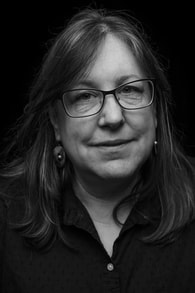 (c) Photo by Dean Davis (c) Photo by Dean Davis If you could cook dinner for any author, dead or alive, who would it be? What would you make? If I could cook dinner for any author, I’d cook for Albert Einstein. I’d slow cook a couple of racks of St. Louis style ribs, I’d make my own rub and my own sauce to finish off those ribs. I’d make my mother’s mustard/egg potato salad and roast some asparagus. For dessert I’d make a tart Granny Smith apple pie, which is the first pie my grandmother taught me. I’d whip some cream for the topping. And we’d either have Earl Grey Supreme iced tea or some Peet’s Sumatra coffee. What scares you the most about the writing process? How do you combat your fears? Nothing really scares me about the whole writing process. I can move left brain to right brain activities pretty quickly. And, if I’m not writing I’m concentrating on the business of writing. Sending out poems or manuscripts, updating my websites, editing. That is my rule. I have to be doing one or the other but never nothing. If I fear I’ve run out of ideas to write about well then I certainly can submit and visa versa. Once I’m in either sphere then either creativity or process creeps back in so that I am always in a state of forward motion with my writing career. Who is your biggest literary crush, author or character? Margaret Atwood is my biggest author crush. I love how she weaves different writing worlds together seamlessly. Science fiction (my first love) and poetry (my true love). She believes in her readers, is fearless in the subjects she tackles and how she writes them. Her writing is layered perfection. Quirky. What books are on your nightstand? The Army of Darkness, Smoke, Shadow, and Raven, who appeared as wee black kittens underneath my office window on Halloween, control what is on my nightstand. There are no books on my nightstand; only a sleeping device and its requisite accessories. And a light. Finally, there is a facedown remote (see cats) for my bed. Favorite punctuation mark? Why? My very favorite punctuation mark is the pipe | . It is a variable symbol, depending on what you are doing or saying and is used in mathematics, computing, and typography. It allows me to have several layered tropes within a poem. Some might read it as an end stop like a period, or a pause like a comma, or for the mathematically inclined the placement of the pipe might read as conditional or as a variable. It allows people to enter the poem in a variety of ways. What book were you supposed to read in high school, but never did? Sadly, I was that geeky girl who read everything she was supposed to read in high school and then a bunch more that she wasn’t supposed to read at all. I was the girl reading the dictionary for fun. I was the girl ecstatic to miss gym, in order to read. What inanimate object would you thank in your acknowledgements? Grateful acknowledgment is made to the following inanimate object(s) that have sustained and inspired me over the years while this book took shape:
If you could write an inspirational quote on the mirrors of aspiring writers, what would you write? Aspiring writers should take advice from these words uttered by Mathesar from the film Galaxy Quest “never give up, never surrender.” Writing is all about learning the craft which means trying a zillion different things and learning by them. You won’t know if you don’t try. Go outside your normal routine, try a short line, a long line, a fractalated poem. It’s about getting muscle memory in your brain. It’s about taking chances. Never giving in, even in the face of negative feedback from critique groups or a mountain of rejections. It’s about honing your craft and then putting it out there. Does writing energize or exhaust you? Writing both energizes and exhausts me. If I am in the writing zone, nothing else matters and sleep is for the weak. Though, sleep does eventually have to catch up. What are common traps for aspiring writers? Writing is a business. Writers need to act like that. Go to the job, do the work, do some extra, have the correct equipment/tools to do the job. Common traps for aspiring writers are:
What is your writing Kryptonite? My Kryptonite is research. I would love nothing more than to research well anything, everything, the tangents I can go off on when looking up something particular, the further dive for more information, better details. Have you ever gotten reader’s block? Reader’s block, is an interesting question. I find it harder to read after cataract surgery. I have to have lots of light, dark enough print. Sometimes it's exhausting to find the pinnacle way to read. Still I manage just fine, it’s just more time consuming. Do you think someone could be a writer if they don’t feel emotions strongly? Sure a person could be a writer if they don’t have strong emotions. Their work will come out fluffy and one dimensional but there are plenty of markets for that, it’s just not something I’d personally like to read or to write. What other authors are you friends with, and how do they help you become a better writer? When I first started writing my friends were 75% from tech and 25% authors and artists. Now that I’ve been writing for ~20 years my friends are 75% authors and artists and 25% tech. Author friends include poets, essayists, fiction, science fiction, fantasy, murder mystery, noir, script writers, and musicians. This breadth of writer friends bleeds into my work all the time, it affords me opportunities to have someone to read and comment on what I am writing and to offer up suggestions or kudos. And, by reading their work I learn by what they are doing. I can ask why they did a particular thing like their line breaks or or why they didn’t make the poem into a short fiction. Do you want each book to stand on its own, or are you trying to build a body of work with connections between each book? The intertwining of life and death, fairy tales, math and science, dementia and alcoholism, abuse, murder/noir myteries. Each of my books stand on its own.Within each book there is ultimately a thread connecting the books so that they could have well gone into another, different book. How did publishing your first book change your process of writing? Publishing my first book didn’t change my writing process. Publishing my 5th book I began to see conjure whole books published rather than each poem published. I began slowing down to figure the arc. Still writing what needs to be written but also visioning how it fits into the next book(s). What was the best money you ever spent as a writer? No doubt about it the best money I ever spent as a writer was to get my MFA. For the most part I have a poem in my head, title, form, words when I go to write it. Going to Grad School taught me how to write the smaller poem, the one not formed in my head. It taught me to read my poetry out loud and it taught me form. My second best thing I ever spent money on is residency fees to get a residency. Residencies freed me up to organize without interruption my manuscripts that are floating in my head. What authors did you dislike at first but grew into? This will be a very unpopular answer. Originally, I never liked Mary Oliver. To me her work was so quiet. Too quiet. It made me impatient. I hated that everyone insisted she was the one author I was missing out on. I tried and tried and tried. So many people gifted me her books. People I love and respect. Eventually, though, the books she wrote after her partner died resonated with me and I was able to grok Mary Oliver. What was an early experience where you learned that language had power? When I was in 7th grade my mother drove by and caught me smoking cigarettes on the corner with my girlfriends. She rolled down her window and said “do you really think that that is the smart thing to do, to smoke?” She rolled up her window, drove home and never said another word to me about it. It was in that instant when I realized a-my mother was right, it wasn’t a smart thing to do and b-my mother used words to get the action she wanted. I never smoked again. What’s your favorite under-appreciated novel? I would love to say China Mieville’s The City and the City because it is vastly underappreciated but it receives a lot of press and book groups seem to love to discuss it. I love it because it's both literary and science fiction and the two don’t often collide. That said the book I come back to and re-read, is Tea with the Black Dragon by R.A. MacAvoy, it’s philosophical, it’s funny, it's charming. As a writer, what would you choose as your mascot/avatar/spirit animal? You don’t get to choose a spirit animal any more than you get to choose a cat, they just show up. Hawk. It has been guiding me my whole life. What do you owe the real people upon whom you base your characters? I owe the real people I’ve based poems on a real truth. Telling their story but edited, perhaps, to keep the heart of the story real. How many unpublished and half-finished books do you have? Currently I have 1 unpublished, completed manuscripts that I am seeking a publisher for. I also have 2 half-finished books, possibly they are really chapbooks that I am still working on. What does literary success look like to you? I’ll see it when I believe it. What’s the best way to market your books? Readings. Readings. Readings. But also workshops and networking. Talking about it on social media. What’s the most difficult thing about writing characters from the opposite sex? Staying in that POV and then double checking with my partner to be sure that my character is correct. What did you edit out of this book? The odd poems that didn’t really work. The ones I still like but couldn’t connect them internally. If you didn’t write, what would you do for work? As a poet I actually do have a job that makes money. I started out in tech a forever ago. In 1997 I founded, with my now ex-husband, Deer Run Associates, Inc. which provides Computer Forensic investigations and Information Security consulting services to select clients across the United States, and throughout the world working with law enforcement and commercial organizations on some of the largest and most high-profile cybercrime cases in recent years. 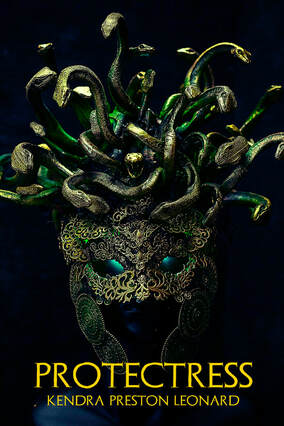 PORTLAND, OR; January 11, 2022--Protectress is a hybrid poetry-prose novella offering a risky take on the legend of Medusa. With stunning economy of words and a delicate hand, Protectress provokes us to think about the feminist identity and the power of compassion. Readers who fell deeply for Emily Wilson’s translation of The Odyssey, Margaret Atwood’s The Penelopiad, Madeleine Miller’s Circe, Emily St. John Mandel’s Station Eleven, Maria Dahvana Headley’s translation of Beowulf, and Toby Barlow's Sharp Teeth will find themselves enamoured with Protectress. About Kendra Preston Leonard Kendra Preston Leonard is a poet, lyricist, and librettist whose work is inspired by the local, historical, and mythopoeic. She is especially interested in addressing issues of social justice, the environment, and disability through poetry. Her first chapbook, Making Mythology, was published in 2020 by Louisiana Literature Press, and her work appears in numerous publications including vox poetica, lunch, These Fragile Lilacs, and Upstart: Out of Sequence: The Sonnets Remixed. Leonard collaborates regularly with composers on works for voice including new operas and song cycles. Her lyrics and libretti have been set by composers including Jessica Rudman, Rosśa Crean, and Allyssa Jones. The author of numerous scholarly books and articles, Leonard is also a musicologist and music theorist, and her academic work focuses on women and music in the twentieth and twenty-first centuries; music and the early modern; and music and screen history. Follow her on Twitter at @K_Leonard_PhD or visit her site at https://kendraprestonleonard.hcommons.org/. ABOUT UNSOLICITED PRESS Unsolicited Press was founded in 2012 and is based in Portland, OR. The press strives to produce exceptional works of fiction, nonfiction, and poetry from award-winning authors. PROTECTRESS is available on January 11, 2022 as a paperback (208 p.; 978-1-950730-63-6) and e-book (all major retailers). The title is distributed to the trade by Ingram. The author is actively seeking to book readings and speaking opportunities with the media. 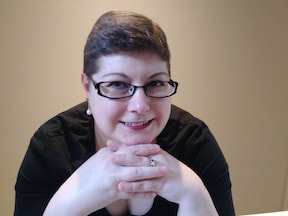 If you could cook dinner for any author, dead or alive, who would it be? What would you make? Nicola Griffih and P. Djèlí Clark. We could talk about using history in our writing, and the stories we’ve found while doing research for our work. I think I’d find some kind of interesting menu or recipes from historical sources to try--maybe using The Historical Cooking Project (http://www.historicalcookingproject.com/). What scares you the most about the writing process? How do you combat your fears? Losing files or ideas. Lots of backups and lots of making notes as I go through the day. I keep a notebook on my nightstand for those late-night or dream-source ideas, of which I have a fair number. I think I’m often working out ideas in my subconscious as I sleep. Who is your biggest literary crush, author or character? I’ve been going through my library trying to come up with a good answer to this, but...plenty of characters and authors I love, but none I could say I had a crush on. I would, though, happily spend time with the Rabbi’s Cat from the books of the same name, or the Disreputable Dog from Garth NIx’s Old Kingdom series. What books are on your nightstand? I always have a bunch of to-read books on my Kindle because I review for NetGalley. Recent favorites have included Binnie Kirshenbaum’s Rabbits for Food; Michael Zapata’s The Lost Book of Adana Moreau; Orlando Ortega-Medina’s The Death of Baseball; and Charlotte Nicole Davis’s The Good Luck Girls. I read widely in terms of genre. Favorite punctuation mark? Why? I love the semi-colon; it lets me join together all sorts of things and create clarity at the same time. What book were you supposed to read in high school, but never did? I was That Student in school, who not only read everything assigned but often read different editions or translations and critical commentary so I could be a plague and/or delight to my teachers, depending on the teacher. What inanimate object would you thank in your acknowledgements? Coca-Cola. If you could write an inspirational quote on the mirrors of aspiring writers, what would you write? Just write. It doesn’t have to be good or polished or pretty, but in order to get there you have to commit some time--even tiny amounts will do--and write. I used to call this the Put Ass in Chair (PAIC) method of writing, but I’m looking for more elegant phrasing. See? It’s a continual process. ;) Does writing energize or exhaust you? I enjoy writing, not just having written. On good days, when my hands are cooperative or the dictation software is working well, it energizes me to put the right words on the page. What are common traps for aspiring writers? Not reading enough because of the fear of imitating other writers. We learn through imitation and thinking about what other writers do; reading is essential for writing. What is your writing Kryptonite? Nothing, really: I always have projects to work on and sometimes moving from scholarly work to creative work or vice versa let s my brain work on one thing in the background while I do another more consciously. Have you ever gotten reader’s block? What is that? No. I’m always reading. Do you think someone could be a writer if they don’t feel emotions strongly? This is a really interesting question, and there is an easy answer in that a lot of writing is the craft of passing--as an expert, as a person of a different race or gender or sexuality or religion, as someone writing about lived experience. But there is a more complex answer if you read this question as one that is asking about autism and the fact that autism is framed (wrongly) as a lack or deficit of emotional capability compared to neurotypical people. As an autistic writer, I think I engage with language in ways that neurotypical writers don’t, but I don’t lack an understanding emotion or what society deems appropriate emotional responses to situations; rather, I simply write about emotion or from a point of emotion differently. What other authors are you friends with, and how do they help you become a better writer? Elizabeth Keenan (Rebel Girls) has offered me good advice about the writing world, and making the jump from scholarly writing to fiction, and has been a great role model for how things are done. Michelle Lee has also offered me insight into balancing scholarly work and fiction. Do you want each book to stand on its own, or are you trying to build a body of work with connections between each book? My work will always be interconnected--as the sole author, how can it not? I think it would be very difficult for a writer to create such disparate works that they would not have any connections at all. From the perspective of creating deliberate connections, I think that the themes and issues that concern me and figure in my writing are consistent, and I’d certainly like readers to read my work with the idea of connectedness in mind, but I’m not developing writing projects that are connected to the point that readers can’t understand later books or pieces without having read earlier ones. How did publishing your first book change your process of writing? My first book was scholarly. From going through the publishing process with it I learned about being very clear about audiences and approaches, creating a framework and explaining it (if necessary) at the beginning, and reifying that structure throughout without being tedious. I’ve also worked in publishing and had been a developmental editor before I began publishing my own work, both scholarly and creative, and that helped me create processes of working through difficult or complex text and ideas. What was the best money you ever spent as a writer? Possibly my first typewriter, an Underwood No. 5 manual, which I took to boarding school at the University of North Carolina School of the Arts. When I was very young, I could never write as quickly as I thought, and often became frustrated by having trouble getting my words down fast enough. The manual typewriter--which cost $10--gave me the ability to write much more quickly than I could with handwriting, allowing me to write more fluidly. More recently, dictation software has been a good investment. What authors did you dislike at first but grew into? Kate Atkinson. I just wasn’t a fan until I read her non-Jackson Brodie novels and was utterly transfixed. I went back and have been enjoying the Brodie books much more. What was an early experience where you learned that language had power? I remember the sweetness of learning to read and, as a child, using that to gain knowledge no one else among my friends or family had, and that was power. What’s your favorite under-appreciated novel? Cassandra Clarke’s Our Lady of the Ice is a stellar novel that asks essential questions about humanity, family, and loyalty in a beautifully developed and fascinating alternate Earth. Megan Campisi’s Sin Eater goes beyond creating an altered early modern period that loosely mirrors our own and is a thriller that is also an examination of women’s labor and relationships. I also want there to be more love for Michael Zapata’s The Lost Book of Adana Moreau, a gorgeous celebration of Latinx SFF writers and traditions. As a writer, what would you choose as your mascot/avatar/spirit animal? My spouse says my daemon (a la Philip Pullman) is a raven: curious, determined, attracted to shiny things--meaning always finding new things to be interested in--and always collecting new information and ideas. What do you owe the real people upon whom you base your characters? Friendship, good music, pride. How many unpublished and half-finished books do you have? I two and a half chapters of a novel that I doubt I’ll ever finish. I might be able to use sections of it in future project, though. What does literary success look like to you? Does my work move the reader? Does it give them reason to laugh or cry or think or relate? If it does, that’s success. When I’m writing lyrics or libretti, success is when a performer tells me that they enjoyed singing my words, that the words I chose were good ones for the scene or emotion, and I think it’s similar for Protectress and my other work as well--I chose good words. What’s the best way to market your books? I’m still learning about this! Digital and print promotions to indie bookstores, co-ops, feminist bookstores, women-owned bookstore, and book clubs; to local libraries and poetry and fiction organizations, like Lone Star Literary Life; ads/sponsorship on podcasts involved with books, poetry, mythology, and so on; Goodreads giveaways, maybe. What’s the most difficult thing about writing characters from the opposite sex? Gender isn’t binary, but a spectrum. I try to avoid gender essentialism and stereotyped concepts of gender. It can be painful and enraging, though, to write about the power of toxic masculinity and to consider how characters infected with it might think and act. What did you edit out of this book? A song about Athena and Pallas written in the style of Lucinda Williams and sung by Aphrodite. It was fun to write and I could hear it as a nice ballad, but ultimately it wasn’t necessary for the story or character development/explication. If you didn’t write, what would you do for work? This is hard, because so many of the careers I’d be drawn to require writing in some way. But if I really couldn’t write, I think I’d be an interpreter. I’d learn lots of languages and get to study a wide variety of topics so that I could serve as an interpreter in fields that interested me. We work really hard to get our books out into the world using all the tools we have available to us. But some authors want to play an active role in the marketing and PR of their books, but they just don't know how. To help authors out, whether you are working with us or not, here is an easy PR blueprint that can help jumpstart the launch of a book.
**Already launched a book? You can still do this. Tailor the timeframe to your needs. 9 Months Prior to Publication
6 Months Prior to Publication
3-4 Months Prior to Publication
Upon Publication
Emily Kiernan is the author of a novel, Great Divide (Unsolicited Press). Her work has appeared in American Short Fiction, Pank, The Collagist, Redivider, JMWW, The Conium Review, Unstuck, and numerous other journals. She has received support from The MacDowell Colony, The Ucross Foundation, The Sewanee Writers’ Conference, and The Bread Loaf Writers’ Conference, among other organizations. She holds an MFA in Writing and Critical Studies from The California Institute of the Arts, and is a prose editor at Noemi Press and a fiction editor at Rivet: The Journal of Writing that Risks.
Kendra Preston Leonard is a poet, lyricist, and librettist whose work is inspired by the local, historical, and mythopoeic. She is especially interested in addressing issues of social justice, the environment, and disability through poetry. Her first chapbook, Making Mythology, was published in 2020 by Louisiana Literature Press, and her work appears in numerous publications including vox poetica, lunch, These Fragile Lilacs, and Upstart: Out of Sequence: The Sonnets Remixed. Leonard collaborates regularly with composers on works for voice including new operas and song cycles. Her lyrics and libretti have been set by composers including Jessica Rudman, Rosśa Crean, and Allyssa Jones. The author of numerous scholarly books and articles, Leonard is also a musicologist and music theorist, and her academic work focuses on women and music in the twentieth and twenty-first centuries; music and the early modern; and music and screen history. Follow her on Twitter at @K_Leonard_PhD or visit her site at https://kendraprestonleonard.hcommons.org/. Last year we were privileged to participate in SMOL Fair, a free and virtual bookfair/conference. For many of us, the main conference is AWP, but the major gripe about AWP is the cost. In fact, we've only been to one AWP because the cost is so steep. You're all but guaranteed to walk away in the red (but the EXPOSURE!). But that's just for presses. What about writers and readers who want to get involved in book/writing conferences but can't afford the registration, the travel, etc.??? There just shouldn't be a paywall to great literature. To conversations with some of the quirkiest and brightest minds in the world.
But with the pandemic, a new issue arose: health. Attending AWP amidst a pandemic is the ultimate example of an 'at your own risk' situation. The 2022 AWP is offering virtual events this year, but they are still charging upwards of $215 for roughly 60 prerecorded events and some virtual live events. As a team, we decided that we wouldn't be attending the 2022 AWP Conference (even though our team isn't attending this year, a cohort of our writers is hosting a bookfair table under our name) as many of us have immunocompromised family members, young children, or are just not ready to be in an indoor space with so many people. And, to be frank, we really wanted be involved in the SMOL Fair again. So when the coordinators of SMOL Fair emailed us, we were thrilled. Last year we had a blast and were so grateful to have a bookfair/conference that was virtual. A virtual conference allows those can't, or don't want to, attend an in-person event to participate in the booky things of life. SMOL Fair is an alternative, virtual book fair that will be 'live' from March 19-26, 2022. This year Brian Evenson will be the keynote speaker. Not to mention, plenty of presses are getting involved and events will be happening through the week. Moreover, there will be giveaways! We have a page dedicated to SMOL Fair that will keep you up-to-date on our events and our giveaways. Visit our page and be sure to visit the SMOL Fair website too. You can keep informed here: https://www.unsolicitedpress.com/smolfair2022.html |
Popular Topics
All
We Support Indie Bookshops |
Unsolicited Press
619.354.8005
info@unsolicitedpress.com
Portland, Oregon
619.354.8005
info@unsolicitedpress.com
Portland, Oregon
